|
Spooks: Behind The Scenes

(Adams, Douglas) Long Dark Tea-Time of the Soul, The

(Adams, Douglas) Mostly Harmless

(Adams, Douglas) Salmon of Doubt, The: And Other Writings

Additional material includes introductions by Stephen Fry and editor Peter Guzzardi (who stitched together the Salmon fragment from disk drafts), The Guardian's Adams biography, Richard Dawkins' farewell piece, and the order of the memorial service. The non-fiction by the man himself ranges from perhaps a dozen meaty articles and speeches to brief squibs, interview/questionnaire answers and tiny asides like: We are stuck with technology when what we really want is just stuff that works. How do you recognise something that is still technology? A good clue is if it comes with a manual. There are enjoyable pieces on computers (especially), atheism, dogs, manta rays on the Great Barrier Reef, the Save the Rhino stunt climb, and PG Wodehouse. Much of the rest is ephemeral; you can't help reflecting that Adams himself never chose to collect all this lightweight newspaper work. Lovers of his fiction will welcome the Hitch-Hiker-related short stories "The Private Life of Genghis Khan" and "Young Zaphod Plays It Safe", despite the latter's dreadfully dated political punch line. What of The Salmon of Doubt itself, a quarter of this book? There's a glimpse of a far-future estate agent's utopia, a woman asking Dirk Gently to investigate a cat that's literally only half there (his puzzling reluctance to take the case may echo Adams' own feelings about the novel), Gently's capricious trip to America in response to an unknown client's total lack of instructions, the tragic death of a rhino as perceived by the rhino... Many teasing questions; we'll never know the answers. Overall it's a must-have for devoted Adams fans and completists, a likely disappointment (though with pleasant exceptions) for new readers. —David Langford (Adams, Scott) Dilbert Principle, The
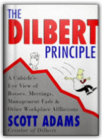
(Adams, Scott) Dilbert Future, The: Thriving on Stupidity

(Adams, Scott) Dilbert 2.0: 20 Years of Dilbert
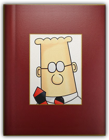
Topsy and Tim Go to the Zoo
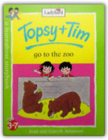
Topsy and Tim Go on a Train
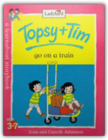
Topsy and Tim Have a Birthday Party

Victorian and Edwardian Dundee and Broughty Ferry from Rare Photographs

(Amis, Kingsley) Jake's Thing

(Amis, Kingsley) Crime of the Century, The

(Amis, Kingsley) We Are All Guilty

Lorenzo Amoruso: LA Confidential - The Autobiography

(Andrews, Colin) Foundation, The

Treasury of Great Short Stories

Primary Colors: A Novel of Politics

Bears Can't Run Downhill: And 200 Other Dubious Pub Facts Explained
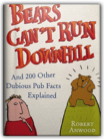
(Archer, Jeffrey) Kane & Abel

(Archer, Jeffrey) Kane and Abel..The Prodigal Daughter..Not A Penny More, Not A Penny Less..A Quiver Full of Arrows

(Archer, Jeffrey) Honour Among Thieves

(Archer, Jeffrey) A Matter of Honour

(Archer, Jeffrey) Twelve Red Herrings

(Archer, Jeffrey) Eleventh Commandment, The

One might assume that, given Archer's proximity to genuine political power for much of his life, he would be in a position to bring a greater realism to his story of high-stakes political manoeuvring than other authors without his experience. He certainly encourages this belief on his page of acknowledgements, which includes a former director of the CIA and FBI and a U.S. National Security Advisor. However, readers anticipating evidence of any great insight into this world should prepare to be disappointed—this is not where the strength of the book lies, although there are some nice touches, and a certain suspension of disbelief is necessary to get the best out of it. Mind you, one doesn't doubt that Archer's eleventh commandment, "Thou shalt not be caught", is a maxim many politicians and power-brokers, himself included, have lived their lives by. Where he does succeed, though, is in story-telling, with a relentless plot and the creation of a sympathetic, if barely plausible, central character capable of drawing readers in and carrying them, thrill-a-minute, to a dramatic, surprising and ultimately satisfying conclusion. —Alisdair Bowles (Archer, Jeffrey) Prison Diary: Volume 2 - Purgatory

(Archer, Jeffrey) False Impression

(Archer, Jeffrey) Cat O' Nine Tales

(Archer, Jeffrey) Paths of Glory

(Archer, Jeffrey) ...And Thereby Hangs A Tale

(Archer, Jeffrey) Sins of the Father, The

(Archer, Jeffrey) As The Crow Flies

(Archer, Jeffrey) A Prisoner of Birth

100 Most Pointless Things in the World, The

(Armstrong, Campbell) Mambo

(Armstrong, Campbell) Agents Of Darkness

(Armstrong, Campbell) Concert of Ghosts

(Armstrong, Campbell) Heat

(Armstrong, Campbell) Silencer/Blackout

(Asimov, Isaac) Bicentennial Man & Other Stories, The

(Asimov, Isaac) Foundation, Pt. : Foundation's Edge

(Asimov, Isaac) Robots of Dawn, The

(Asimov, Isaac) Rest of the Robots, The

(Asimov, Isaac) Best Mysteries of Isaac Asimov, The

(Asimov, Isaac) Fantastic Voyage, Pt.2: Destination Brain

(Asimov, Isaac) Azazel

(Asimov, Isaac) Nemesis

(Asimov, Isaac) Robot Visions

(Asimov, Isaac) Forward the Foundation

(Atkinson, Kate) Human Croquet

(Atkinson, Kate) Human Croquet

(Atkinson, Kate) Emotionally Weird

On the surface, Emotionally Weird follows the trend. Effie and her mother Nora are staying in the decaying family home on a small island off the West coast of Scotland. To keep themselves amused they begin telling stories. Nora's are about their ancestors, in whose veins blood blue as "delphiniums and lupins" flows, and the real identity of Effie's father and mother. Nora's language is like her "sea-change eyes", full of poetry and strange beauty. Effie's tales of life at the University of Dundee and her life with Star Trek obsessed Bob are more prosaic and funny: "I did so hope that Bob was a dress rehearsal, a kind of mock relationship, like a mock exam, to prepare me for the real thing." The novel becomes troublesome where it follows Effie to a creative writing course at the university. The class is run by Martha: who writes poetry "with impenetrable syntax about a life where nothing happened." The other characters in the novel are pre-occupied with the same need to find meaning through writing. Archetypal detective stories, sword and sorcery fantasy, doctor and nurse romantic scenarios, existential angst and liberal use of ellipses are given free reign. Whilst this self-conscious wordplay is fun for those who enjoy a more literary book, those who simply enjoy a good read may get lost in the jostle of competing language construction. In this novel, confused paternity is only part of the struggle for identity, the words you use are also defining- you are what you write. Some readers will revel in the Shandy-esque shape of the experimental in this narrative, others may find it's a literary joke taken too far.—Eithne Farry. (Atkinson, Kate) When Will There Be Good News?

(Atkinson, Kate) Started Early, Took My Dog

Earth's Children, Pt.3: The Mammoth Hunters (BCA)

Shelters of Stone, The

Earth's Children, Pt.2: The Valley Of Horses (BCA)

Earth's Children, Pt.1: The Clan of the Cave Bear

Although Jean Auel obviously takes certain liberties with the actions and motivations of all our ancestors, her extensive research into the Ice Age does shine through—especially in the detailed knowledge of plants and natural remedies used by the medicine woman and passed down to Ayla. Mostly, though, this first in the series of four is a wonderful story of survival. Ayla's personal evolution is a compelling and relevant tale. —Sara Nickerson, Amazon.com—This text refers to the hardcover edition. Plains of Passage, The

The Plains of Passage continues the epic description of our civilisation as it was 25,000 years ago. Auel's protagonists Ayla the orphan and Jondalar the traveller decide to forsake the comfort and safety of life with the mammoth hunters by the Black Sea, and set out on a daunting odyssey. Their plan is to traverse a continent, heading for the Cro-Magnon settlement which Jondalar called home as a young man. Their journey across unimaginable distances is fraught with spectacular dangers, and their only companions are the half-tame Wolf, the magnificent stallion Racer and the mare Whinney. As so often in Auel's work, it's the brilliantly evocative scene-setting that makes her narratives of high adventure so impressive. Characterisation is, as always, functional rather than inspired, but it's perfectly suited to the Technicolor landscapes the reader is confronted with. And the descriptive passages are as evocative as ever: The rising sun peaked over the eastern edge with a blinding burst of light that illuminated an incredible scene. To the west, a flat, utterly featureless dazzling white plain stretched out before them. Above it the sky was a shade of blue she had never seen in her life. It had somehow absorbed the reflection of the red dawn, and the blue-green undertone of glacial ice... —Barry Forshaw Earth's Children, Pt.1 & 2: The Clan of the Cave Bear + The Valley of Horses

Although Jean Auel obviously takes certain liberties with the actions and motivations of all our ancestors, her extensive research into the Ice Age does shine through—especially in the detailed knowledge of plants and natural remedies used by the medicine woman and passed down to Ayla. Mostly, though, this first in the series of four is a wonderful story of survival. Ayla's personal evolution is a compelling and relevant tale. —Sara Nickerson, Amazon.com—This text refers to the hardcover edition. Pride and Prejudice

Time For Bed

Whatever Love Means

Monday's Child

Sparkles

Empire Of The Sun

Whit

A Song of Stone

The couple are being kept captive in their home—a castle—by a sadistic female lieutenant from an outlaw band of guerillas. They are pawns in her dangerous game of desire, deceit, and death. The physical, sexual and political tensions that ensue catapult the narrative from war story to universal morality tale. Dead Air

His protagonist here is Ken Nott, a character as penetratingly realised as ever. He's a committed contrarian, ekeing out a living as a left-wing radio shock-jock in London. He makes his home in a loft apartment in the East End, in a former factory due to be demolished in a few days. After a wedding breakfast, people begin to pitch fruit from a balcony on to a deserted car park 10 storeys below; then they begin dispatching other things: a broken TV, a loudspeaker with a ruptured cone, bean bags and other useless furniture. Then the guests enter a kind of frenzy and start dropping things that are still working, at the same time trashing the rest of the apartment. But suddenly mobile phones start to ring urgently and they're told to turn on the TV, because a plane has just crashed into the World Trade Center. And Ken Nott finds his life is to change irrevocably. Banks's subject here is nothing less than the survival of the individual in the face of a chaotic world. The destruction of personality under the lacerating values of modernity is a subject repeatedly addressed by JG Ballard (and that author's shadow is clearly evident here), and although this is one of the Iain Banks novels in which he pointedly does not use the "M" in his name that marks his science fiction, this nightmare vision of contemporary London has more than a trace of that genre in its sense of fractured reality. But all the caustic humour and dark character development that Banks excels in are fully in place. —Barry Forshaw Raw Spirit: In Search of the Perfect Dram

Steep Approach to Garbadale, The

Transition

Player of Games, The

Use of Weapons

State of the Art, The

Excession

Inversions

Look to Windward

After a harrowing battle flashback, the scene shifts to one of the Culture's wonderfully landscaped, ring-shaped artificial worlds called Orbitals. A ghastly light is awaited in the sky from distant suns detonated in the war of Consider Phlebas eight centuries earlier; an occasion for sombre festivity, pyrotechnics, and a memorial symphony from exiled alien composer Ziller. Meanwhile another tortured member of Ziller's race—aggressors and victims in that more recent civil war—arrives on a mission whose dreadful nature emerges through fragments of slowly returning memory. Elsewhere, in the exuberantly imagined airsphere home of floating "behemothaurs" almost too huge to imagine, the clue to what's happening falls belatedly into inexperienced hands... While scattering red herrings and building tension for his final burst of literal and moral fireworks, Banks shows us around the Orbital in sensuous, lyrical travelogues. Rich scenery, high living, low comedy and dangerous sports contrast with reflections on mortality and the lingering aftershock of both those wars, recalled by ravaged veterans. Look to Windward culminates with deft twists, inversions, parallels, and savage justice, as unexpected as we expect from this author. Recommended. —David Langford Algebraist, The

For short-lived 'Quick' races like humans, space is dominated by the complicated, grandiose Mercatoria whose rule is both military and religious. To the Dwellers who may live billions of years, the galaxy consists of their gas-giant planets—the rest is debris. Our human hero Fassin Taak is a 'Slow Seer' privileged to work with the Dwellers of the gas-giant Nasqueron in his home system Ulubis. His life work is rummaging for data in their vast, disorganised memories and libraries. Unfortunately, without knowing it, he's come close to an ancient secret of unimaginable importance. Though Ulubis is currently cut off from the galactic wormhole travel network, two interstellar battle fleets are racing for this secret. The hissable arch-villain Luseferous—whose tastes run to torture, atrocity and genocide—seems bound to arrive in overwhelming strength before the Mercatorian rescue squadron. So Fassin is reluctantly conscripted into security forces, and enters the hell of Nasqueron's atmosphere to seek the magic key (code? signal frequency? equation?) that might save everything. Even at their most helpful and charming, though, Dwellers are maddeningly elusive. For ancients, they seem bumbling and whimsical, far more interested in hunting, kudos, and extreme sports like GasClipper Races or Formal War than in saving humanity's skin. Their ramshackle transport and awesome yet run-down floating cities suggest that Dweller legends of hypertechnology are sheer bluff. But are they keeping something dark? Fassin's journeys and discoveries are exhilarating, witty, sometimes mind-boggling. Exotic weaponry abounds. The Dwellers are engagingly eccentric, like AI Minds in the Culture books—but the Mercatoria has banned artificial intelligence as Abomination, and this too is a plot strand. Additionally there are human revenge, intrigue and betrayal subplots; surprises and upsets; and the mother of all shaggy-dog revelations. Once again Banks is having enormous fun with space opera, and his exuberant enjoyment is infectious. Highly readable stuff.—David Langford Matter

Foundation, Pt. : Foundation and Chaos

Small World

Writing Home

Ronan the Barbarian

Ronan's Revenge

IBM and the Holocaust

Burglar on the Prowl

Malory Towers
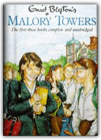
Back to Malory Towers

Back to St. Clare's

O'Clock Tales Collection, The
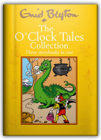
Famous Five: Mystery Collection (Secret Trail / Demon's Rock / Mystery To Solve)

Naughtiest Girl Collection

Smugglers' Caves & Other Stories, The
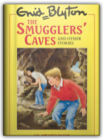
Paddington Suitcase

Parallel Thinking: From Socratic to De Bono Thinking

My Shit Life So Far

Black Trillium

United!

To Sir, with Love

Debrett's Etiquette for Girls
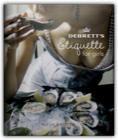
Ascent of Man, The

Wuthering Heights

Shannara: Armageddon's Children

Pandaemonium

Voyage of the Jerle Shannara, The: Ilse Witch Bk.1

Fans of Terry Brooks will know precisely what to expect from him: undemanding sword—and—sorcery adventure with touches of the gloomily mysterious and of the more complex emotions. This is Brooks at his best and this novel is the least dependent on earlier models as it becomes clear that in this sequence the relationship between good and evil is more complicated than usual. —Roz Kaveney Shannara: The Elves Of Cintra

Shannara: The Gypsy Morph

Looney Tunes Pop-up Storybook presents... Taz in Spin Cycle

Da Vinci Code, The

A murder in the silent after-hours halls of the Louvre reveals a sinister plot to uncover a secret that has been protected by a clandestine society since the days of Christ. The victim is a high-ranking agent of this ancient society who, in the moments before his death, manages to leave gruesome clues at the scene that only his daughter, noted cryptographer Sophie Neveu, and Robert Langdon, a famed symbologist, can untangle. The duo become both suspects and detectives searching for not only Neveu's father's murderer but also the stunning secret of the ages he was charged to protect. Mere steps ahead of the authorities and the deadly competition, Neveu and Langdon embark on a breathless flight through France, England and history itself. Brown has created a page-turning thriller that also provides an amazing interpretation of Western history. Brown's hero and heroine embark on a lofty and intriguing exploration of some of Western culture's greatest mysteries—from the nature of the Mona Lisa's smile to the secret of the Holy Grail. Though some will quibble with the veracity of Brown's conjectures, therein lies the fun. The Da Vinci Code is an enthralling read that provides rich food for thought. —Jeremy Pugh, Amazon.com Lost Symbol, The

Khaavren Romances: Pt.01 - The Phoenix Guards

Agyar

Khaavren Romances: Pt.02 - Five Hundred Years After

Taltos: Pt.08 - Dragon

Taltos: Pt.01, 02 & 03 - Book of Jhereg, Yendi & Teckla

Taltos: Pt.09 - Issola

Taltos: Pt.04 & 05 - The Book of Taltos & Phoenix

Khaavren Romances: Pt.03 - The Paths of the Dead

Taltos: Pt.06 & 07 - The Book of Athyra & Orca

Khaavren Romances: Pt.04 - The Lord of Castle Black

Khaavren Romances: Pt.05 - Sethra Lavode

Taltos: Pt.10 - Dzur

Taltos: Pt.11 - Jhegaala

Taltos: Pt.12 - Iorich

Taltos: Pt.13 - Tiassa

Thirty-nine Steps, The

500 Reasons Why... I Hate the Office

Snap

Nark

Spike

Autobiography of a One Year Old

DotCom Divas: Profiles of 20 Successful Web Companies and the Women Who Founded Them

Her choices of women Web entrepreneurs are fascinating and eclectic: Nancy Evans and Candice Carpenter at iVillage, Janina Pawlowski of E-Loan, Eugenie Diserio of the astrology site Astronet, and oneNest founder Durreen Shahnaz, who links disadvantaged artisans to global markets. Carlassare's readable profiles are not puff pieces. She organises her visionary leaders into four areas of the Internet economy: Web portal, Web-based services, e-commerce and e-business applications. Each chapter explores one company and founder in terms of the source of their winning business idea, the business plan, fundraising, teambuilding and meeting the challenges of growing and marketing their business. Chapter-end summaries capture the essence of each woman's unique strategies for success. Carlassare offers many engaging excerpts from a day in the life of her divas. For example: oneNest CEO Durreen Shahnaz trekking in Bangladesh; Nancy Evans and Candice Carpenter raiding their personal bank accounts to meet the iVillage payroll; and Janina Pawlowski, standing on the floor of Goldman Sachs, sweating out E-Loan's public offering. The book could have been strengthened by a concluding chapter to underline key success patterns. Still, each chapter offers specific insights and inspiration for both experienced and aspiring Web entrepreneurs. And these powerful perspectives are not for women only. —Barbara Mackoff Emperor of Ocean Park, The

After the funeral of his powerful father (a federal judge whose nomination to the US Supreme Court became a public scandal), Talcott Garland, an African-American law professor at an Ivy League university, is left to unravel the meaning of a cryptic note and carry out "the arrangements" his father left behind. Armed with fortitude and familial devotion—though paranoid of his wife's fidelity—Talcott soon finds himself in an investigation that entangles him with a number of questionable Washington DC denizens, including lawyers and government officials, law professors, the FBI, shady underworld figures, chess masters, and friends and family. All the while Talcott tries not to hurt his lawyer wife's chance for a judicial nomination—and their fragile marriage—but the closer he comes to unravelling his father's dark secrets, the more dangerous things become. Clocking in at over 650 pages, the novel could easily have been streamlined; many of Talcott's thoughts are unnecessarily repeated. But Carter's storytelling skills are adept: tension builds, surprises are genuine and clues are not handed out freely. The prose, while somewhat meandering, can be crisp and insightful, as demonstrated in Carter's description of the misguided paths of young lawyers who sacrifice, "all on the altar of career... at last arriving... at their cherished career goals, partnerships, professorships, judgeships, whatever kind of ships they dream of sailing, and then looking around at the angry, empty waters and realizing that they have arrived with nothing, absolutely nothing, and wondering what to do with the rest of their wretched lives". —Michael Ferch Book of Zen, The: The Path to Inner Peace

Worth Dying For

Songs of Distant Earth, The

Born to be Riled: The Collected Writings of Jeremy Clarkson

Whether you love or loathe him, Born to be Riled makes for an entertaining and lively read as Clarkson vents his anger and frustration at, among other things, Sunday drivers, caravans and politicians. Even places are not safe from his poisonous tongue, with Surrey, Birmingham and Norfolk being on the receiving end of some particularly venomous rants. Clarkson's views on cars and motoring make for interesting reading but do tend to speak to the more initiated enthusiast than the casual driver and analogies and comparisons are often lost on all but the most technically minded car fanatic. However, Clarkson writes with joyous wit and even when his arguments seem a little shaky, you can't help but find yourself nodding in agreement or realising that he is riled by all the things in life that you are—being stuck behind a caravan on a country back road or the drink-driving laws in this country. In much the same way as Bill Bryson chronicles life's daily woes and pitfalls with a scathing sense of humour, so Clarkson speaks for a silent majority who are secretly incensed by a million and one things everyday of their lives, but are just a little too British to say anything. In this book, Clarkson has become the common man's champion and when he is fighting for the cause with this much humour and wit, long may he remain in that position. —Jonathan Weir And Another Thing : The World According to Clarkson Volume 2

Don't Stop Me Now

For Crying Out Loud: The World According to Clarkson Volume 3: The World According to Clarkson v. 3

‘What is the matter with people these days?’ If you've ever wondered that, you’ll find a hundred answers in this book, along with a discussion of why binge drinking is good for you, the difficult task of drumming in middle age (and, allied to this, the secret of eternal youth). Oh yes — and America. Don't get Jeremy Clarkson started on America (in fact, it's too late… you'll find some pithy observations on the States within these pages that are likely to make quite a few people's blood temperatures rise). Ironically, if we were to get stuck behind a taxi driver who harangued us like Jeremy Clarkson, we’d be praying for a short journey. So why is it that For Crying Out Loud is so disgracefully entertaining? Perhaps it is because Clarkson — when he is away from his beloved (and slightly boring) cars — is immensely articulate at voicing his enthusiasms and pet hatreds (more of the latter than the former, it has to be admitted). One warning should accompany the book, though — if you give it as a present to a loved one, be prepared to have great chunks read out loud ad infinitum (and perhaps ad nauseam) along the lines of ‘Listen to what Clarkson says about X or Y! Boy, has he got this right!’ You might not want to share a taxi journey with Jeremy Clarkson, but reading his books are a whole different experience — and, who knows, you might just end up agreeing with him. —Barry Forshaw Driven to Distraction

Murder Most Fab: You'd Kill to be that Famous

Complete "Fawlty Towers", The

My Life

Clinton approaches the story of his youth with gusto, sharing tales of giant watermelons, nine-pound tumours, a charging ram, famous mobsters and jazz musicians and a BB gun standoff. He offers an equally energetic portrait of American history, pop culture and the evolving political landscape, covering the historical events that shaped his early years (namely the deaths of Martin Luther King Jr and JFK) and the events that shaped his presidency (Waco, Bosnia, Somalia). What makes My Life remarkable as a political memoir is how thoroughly it is infused with Clinton's unassuming, charmingly pithy voice: I learned a lot from the stories my uncle, aunts, and grandparents told me: that no one is perfect but most people are good; that people can't be judged only by their worst or weakest moments; that harsh judgments can make hypocrites of us all; that a lot of life is just showing up and hanging on; that laughter is often the best, and sometimes the only, response to pain. However, that same voice might tire readers as Clinton applies his penchant for minute details to a distractible laundry list of events, from his youth through the years of his presidency. Not wanting to forget a single detail that might help account for his actions, Clinton overdoes it—do we really need to know the name of his childhood barber? But when Clinton sticks to the meat of his story—recollections about his mother, his abusive stepfather, Hillary, the campaign trail and Kenneth Starr—the veracity of emotion and revelations about "what it is like to be President" make My Life impossible to put down. To Clinton, "politics is a contact sport" and while he claims that My Life is not intended to make excuses or assign blame, it does portray him as a fighter whose strategy is to "take the first hit, then counterpunch as hard as I could". While My Life is primarily a stroll through Clinton's memories, it is also a scathing rebuke—a retaliation against his detractors, including Kenneth Starr, whose "mindless search for scandal" protected the guilty while "persecuting the innocent" and distracted his administration from pressing international matters (including strikes on al Qaeda). Counterpunch indeed. At its core, My Life is a charming and intriguing if flawed book by an intriguing and flawed man who had his worst failures and humiliations made public. Ultimately, the man who left office in the shadow of scandal offers an honest and open account of his life, allowing readers to witness his struggle to "drain the most out of every moment" while maintaining the character with which he was raised. It is a remarkably intimate, persuasive look at the boy he was, the president he became and the man he is today. —Daphne Durham, Amazon.com Graft, The

Nick Leary is having trouble sleeping, what with sultry heat and business and family problems weighing on his mind. His wife is sleeping beside him, when he hears a noise downstairs—and soon he has to decide how much violence he will use to defend his home and family. The decision he makes is to change his life forever. Nick and his wife are taken to the very extremes of human behaviour—and he is obliged to decide how high a price he will pay to keep what he values most. As ever, Cole exerts an effortless grip throughout her unsettling narrative. We’re used to her exuberantly characterised heroines, but the beleaguered Nick shows that’s she’s just as on-the-nail with her male characters. The edgy plotting has the kind of no-nonsense handling that is Cole's métier. Perhaps a touch more psychological strip-mining of her protagonists would have deepened her achievement, but what the hell—all the right buttons are pressed here.—Barry Forshaw Artemis Fowl

Fantastic stuff from beginning to end, Artemis Fowl is a rip-roaring, 21st-century romp of the highest order. The author has let his imagination run riot by combining folklore, fantasy and a fistful of high-tech funk in an outrageously devilish book that could well do for fairies what Harry Potter has done for wizardry. But be warned: this is no gentle frolic so don't be fooled by the fairy subject matter. Instead what we have here is well written, sophisticated, rough and tumble storytelling with enough high-octane attitude to make it a seriously cool read for anyone over the age of 10. —Susan Harrison Artemis Fowl: The Arctic Incident

Eternity Code, The

Artemis and his bodyguard Butler have set up a meeting in Chicago with dangerous international businessman Jon Spiro. In his latest eager attempt to make money, using a priceless futuristic cube of purloined Fairy gadgetry that can do just about anything, Artemis has underestimated Spiro and arrived at the rendezvous under-prepared. Big mistake. It is an ambush, and though Artemis escapes with his life, Butler is mortally wounded. The cube may be lost but Artemis refuses to accept his friend's demise and quickly deep freezes Butler in the restaurant kitchen. He calls on the only people he knows who might be able to get him back—Holly Short of the subterranean Fairy police and her race's super-advanced technology. Holly and Artemis must find a way to bring Butler back from the dead and retrieve the lost Eternity Cube that could change the balance of power between humans and fairies forever. It is a Herculean task and the price exacted upon Artemis for such assistance is very high indeed. What Colfer's latest plot may lack in depth or sophistication is more than made up for by the sheer verve and energy of his settings, characters and action. These books are very entertaining indeed and hugely readable, and once you're a Fowl fan you'll be hooked until Artemis decides to go straight. Recommended for ages nine and above. —John McLay Looking for Andrew McCarthy

Feeling misled by the glittering façade presented to her in the dimly-lit cinemas of her teenage years, bored with her career, fed-up with her failing love life and ashamed that at 30 she's still renting a room in a flat owned by Big Bastard, the Neanderthal flatmate-from-hell, Ellie needs some answers—and she needs them now. Gathering up a group of similarly disillusioned friends, Ellie makes her way to America, and together they set off, Thelma and Louise-style (except without the cliff-ending suicide pact) to criss-cross America in search of 80s screen idol Andrew McCarthy. In a tale which explores every avenue of the old saying "it is better to travel hopefully than to arrive", Ellie and friends on both sides of the Atlantic share in the joys and disappointments of her quest: a journey which takes her to the four corners of the States and brings her into contact with a variety of outrageous characters, ranging from hunky tanned scriptwriters to six foot tall transvestites and even Frosty II, the world's largest pig. Does she find the real Andrew McCarthy? And will she ever come to terms with why she hasn't spent her life living in a huge apartment with billowing curtains, wearing a big pink dress and being dated by a succession of handsome men, like a modern-day Molly Ringwald? —Emily Lowson Working Wonders :

Arthur Pendleton has led an unexciting life, working as a town planner and slowly realising that his life holds few surprises. Then he encounters the head of a team of management consultants, the beguiling and beautiful Gwyneth Morgan, a woman Arthur finds himself intimidated by. Her job is to inspire Arthur and his ill-assorted team of planners to take on a daunting task—ensure that Coventry becomes the new European city of culture. Looking around at such colleagues as nerdish computer expert Sven and the unhappy (and long-suffering) Cathy, Arthur becomes increasingly dispirited. And then, astonishingly, Gwyneth shows signs of being attracted to him, and (even more surprisingly) his team begins to fire on all cylinders with ideas. But which is more achievable: beginning a relationship with the intriguing Gwyneth, or making Coventry appear interesting? The elements that made Jenny Colgan's earlier books bestsellers are firmly in place here: quirkily observed characters, capricious plotting and a truly involving sense of the way in which most of us live our lives. Both Arthur and Gwyneth are beautifully drawn, and even if the basic theme (dull hero and brighter heroine in a non-metropolitan culture clash) may owe something to David Lodge's Changing Places, it's none the worse for that; this is an enchanting read. —Barry Forshaw My Secrets

25 Years of Viz - Silver Plated Jubilee
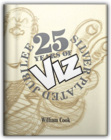
(Cornwell, Patricia) Scarpetta, Pt.04: Cruel and Unusual

(Cornwell, Patricia) Scarpetta, Pt.18: Port Mortuary

(Cornwell, Patricia) Scarpetta, Pt.01: Postmortem

(Cornwell, Patricia) Scarpetta, Pt.02: The First Scarpetta Omnibus: Postmortem / Body of Evidence

(Cornwell, Patricia) Scarpetta, Pt.06: From Potter's Field

(Cornwell, Patricia) Scarpetta, Pt.07: Cause of Death

(Cornwell, Patricia) Brazil & Hammer, Pt.01: Hornet's Nest

(Cornwell, Patricia) Scarpetta, Pt.08: Unnatural Exposure

(Cornwell, Patricia) Scarpetta, Pt.09: Point of Origin

Perhaps because Kate Reading has also narrated Cornwell's Unnatural Exposure and Cause of Death, her voice conveys experience and the history of what has come before, allowing listeners to hear between the lines. Using a subtle but effective range of vocal inflections, Reading lifts the characters off the page and carries them along as the plot spins ever faster, tangling Scarpetta in a snarl of arson, deceit and psychopathic murder. With her nemesis making threats and suspicious fires leaving calcified corpses, Dr. Scarpetta's long-overdue romantic getaway has gone up in smoke. It's just one more day at the morgue and Point of Origin, another hit in the popular series of Scarpetta mysteries, finds the good doctor's attitude honed to a razor sharp point.—George Laney (Cornwell, Patricia) Brazil & Hammer, Pt.02: Southern Cross

(Cornwell, Patricia) Scarpetta, Pt.10: Black Notice

As winter grips Richmond, Virginia, an air of sombreness pervades chief medical examiner Kay Scarpetta's world. Her beloved niece Lucy is involved in a dangerous undercover police operation in Miami, and auntie fears for her life. A tyrannical new deputy chief, Diane Bray, wants to get Kay's department under her jurisdiction. Meanwhile, back at the office, someone has tinkered with the e-mail system, stealing Kay's identity and sending off slanderous and hurtful messages. Emotionally battered, Scarpetta fears she is going insane. Or, could it be that someone is deliberately sowing this harvest of sorrow? Despite her personal problems, Scarpetta is still the reigning diva at the department of death. She is sent to investigate the purified remains of a man found inside a container ship, "eyes bulged froglike, and the scalp and beard were sloughing off with the outer layer of darkening skin." Kay finds strange, animal-like hairs on the man's clothing—the same hairs that she discovers on a murdered store clerk a few days later. In actuality, the bizarre killings extend well beyond Virginia; whoever killed the Richmond victims also butchered people in France. Kay and police captain Pete Marino are whisked off to Paris where they must collect top-secret information from a Paris morgue, and avoid becoming victims themselves. This macabre tome is the stuff that classic Scarpetta tales are made of: creepy but compulsive autopsy scenes, plentiful plot twists and the compelling, if slightly more vulnerable, chief medical examiner herself. —Naomi Gesinger (Cornwell, Patricia) Scarpetta, Pt.11: The Last Precinct

(Cornwell, Patricia) Brazil & Hammer, Pt.03: Isle of Dogs

The madcap doings get underway when the addled, nearly blind governor of Virginia confusedly launches a speed-trap program on isolated Tangier Island, whose prickly, eccentric residents promptly attempt secession. Cornwell adeptly interweaves other crisscrossing plot lines involving a gang of street-stupid thugs gunning for Hammer and Brazil, an angel-faced serial killer, a kidnapped dog and more. She does miss a few beats: the pacing sags during certain episodes, and at times the writing strains so hard for laughs that instead it draws winces. Nonetheless, Isle of Dogs is for the most part a funny, diverting read and a refreshing departure for Cornwell. —Nicholas H Allison, Amazon.com (Cornwell, Patricia) Portrait of a Killer: Jack the Ripper - Case Closed

Using the methods of her character Kay Scarpetta, Cornwell's forensic investigation has pointed the bloody finger of guilt at a figure who has long figured prominently in the Ripper files. The investigation here is an intriguing mix of the personal and the professional: as well as orchestrating a Scarpetta-like search for the identity of the Ripper, Cornwell involves several very personal connections with the task she has set herself, and this is no dry thesis. Needless to say, the more gruesome aspects of this famously grisly case give no pause to a woman who has taken us into the grimmer aspects of forensics with her unsqueamish protagonist, and we are spared no details here (but who would purchase Portrait of a Killer if they had delicate sensibilities?). The arguments here are intelligently marshalled, and laid out with the precision and attention to detail of Cornwell's novels. In order to prove her thesis, Cornwell purchased (and made tests on) some great works of art, but the tale of how she arrived at her highly contentious conclusions is quite as fascinating as one of the Scarpetta books. You may not agree with her, but you will not put this book down. —Barry Forshaw (Cornwell, Patricia) Scarpetta, Pt.12: Blow Fly

(Cornwell, Patricia) Scarpetta, Pt.13: Trace

In this latest outing, Kay finds herself back in Virginia examining a curious death, that of the youthful Gilly Paulson. Joel Marcus, her successor as Chief Medical Examiner, has summoned a reluctant Scarpetta to help out, but her professional work is compromised by her unhappiness at the radical changes occurring in her old territory: Scarpetta's old morgue has been bulldozed, and she isn’t happy working with the man who took her job. Other members of the familiar Scarpetta crew make an appearance: her partner Benton Wesley and her niece Lucy Farinelli are tracking down an assailant who has nearly ended the life of one of Lucy’s colleagues. The two cases turn out to be connected (surprise!), and soon several lives are at stake. After the recent misfires, it’s a relief to note that Patricia Cornwell is back on track, dealing comfortably with her most familiar protagonist and a plot that yokes in bomb-makers and some bizarre sexual practices. A resounding welcome back, to both Ms Cornwell and Ms Scarpetta.—Barry Forshaw (Cornwell, Patricia) Scarpetta, Pt.14: Predator

(Cornwell, Patricia) Win Garano - 01 - At Risk

The book is based on a recent story of the same name serialised in The New York Times, but those hoping for the return of Cornwell’s resourceful forensic specialist Dr Kay Scarpetta will have to wait a little longer, as Cornwell introduces a new central character in this book. Having inhabited the mind of a female protagonist for so long, the author has felt the need to move into very different territory with a charismatic male police investigator at the centre of the narrative. The book takes the reader from the cool climes of Cambridge, Massachusetts to the overbearing heat of Knoxville Tennessee. Win Garano is handed a tricky assignment: he is to investigate a murder case that is over two decades old. District Attorney Monique Lamont isn't concerned about the difficulties of the case, though—she simply wants results for personal reasons. Win is convinced that he has been saddled with a very low priority case, but quickly finds that there is much more to this twenty-year-old mystery than he thought. As some very dangerous secrets are uncovered, Win finds himself dealing with both the consequences of his investigation and the remarkable ambitiousness of Monique Lamont as he pursues a political grand prize. In the past, when Cornwell has moved away from the safe territory of the Kay Scarpetta novels, she has slightly alienated her dedicated fan base. But she is absolutely right to take chances like this in order to freshen her literary inspiration, and this fast-moving piece is a laudable effort, even if it comes in at a rather shortish page count. —Barry Forshaw (Cornwell, Patricia) Scarpetta, Pt.15: Book of the Dead

(Cornwell, Patricia) Win Garano - 02 - The Front

(Cornwell, Patricia) Scarpetta, Pt.17: The Scarpetta Factor

(Cornwell, Patricia) Scarpetta, Pt.16: Scarpetta

(Cornwell, Patricia) Scarpetta, Pt.19: Red Mist

(Cornwell, Patricia) Scarpetta, Pt.20: The Bone Bed

(Cornwell, Patricia) Scarpetta, Pt.22: Flesh & Blood

(Cornwell, Patricia) Scarpetta, Pt.23: Depraved Heart

Frog on a Log
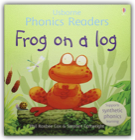
Disclosure

Next

Mobius Dick

(Currie, Edwina) A Parliamentary Affair

(Currie, Edwina) A Woman's Place

(Currie, Edwina) She's Leaving Home

(Currie, Edwina) Ambassador, The (BCA)

The Ambassador falls somewhere between political thriller and science fiction, with a small romantic drama running through it. Set in 2099, the book advances a coherent vision of a fully federal European Union that has become so powerful it is the leading superpower. China remains in careful isolationism, as does a weak United States. The reason for the European success is its work on genetics; diseases and disabilities, along with tendencies to destructive behaviour, are eliminated carefully at conception or shortly after birth. Prosperity and long life are freely on offer. There seems to be no unhappiness. Can it be that, in Voltaire's ironic words, "the best of all possible worlds" has now arrived? William "Bill" Strether, American ambassador to London, suspects not. Coming from a country where Fundamentalist Christianity has ensured the abolition of genetic work and cloning of humans, he has to overcome his distaste for the society while admiring its success (a nice inversion of how Europeans think of the U.S. in the present day). A naïve but brave humanist, he is impressed at first, but finds more and more reasons for concern as the futuristic paradise reveals sinister and secretive machinations. The novel acknowledges Brave New World as a model, but the abuse of eugenics has an even more terrible side in The Ambassador; Currie knows the political establishment and its arrogance and power well, of course, and compellingly renders the smooth self-justifications of her villains and the sickening terror of state control. In fact, the book transcends the thriller genre in its debates about genetic science; Currie articulates every side of this complex moral issue, and one's sympathies slide and waver. The book also achieves a political wit in its details and asides that makes it even more of a pleasure. Despite the triumph of meritocracy in the U.S., the abolition of discrimination in Europe (not to mention the official denials about cloning), and the withering of the hereditary principle, the names of Currie's minor characters show that dynasties somehow maintain power anyway. A Kennedy is US President; a young Murdoch is still a media tycoon. Another media tycoon bears the hybrid name "Maxwell Packer". Margaret Thatcher is spoken of as a figure from history books, sometimes with approval and sometimes more sardonically. At one point President Clinton is referred to: "the second one, you know—Chelsea". These humorous references remind one that this amusing and compelling piece of political science fiction is based on themes—European federalism, genetics, civil liberties—that are, and will continue to be, highly topical.—Robert Potts (Currie, Edwina) Chasing Men

Hetty Clarkson, attractive and single, is stuck in a flat she is not happy with and finding it difficult to get that elusive job in the media. But unlike the thousands of young women facing this situation, Hetty is that awkward creature, the mid-life single woman. After a failed marriage, she is being advised by friends and family to chase men—but Hetty isn't convinced. Needless to say, for she decides to alter her life and she is soon sampling an interesting range of men who offer a very diverse range of sexual experiences. Currie has ensured that her sympathetic heroine is surrounded by a satisfyingly characterised group of soul mates: a priest with a taste for the bawdy, an ageing professor and the gay couple upstairs (The treatment of the latter couple reminds one that in her days as an MP, Currie upset many in her party by her distinctly liberal views). All of the characters have challenged convention in one way or another—but does Hetty have what it takes to defy society's hidebound rules and find what she is looking for? As in the earlier books, Currie knows precisely how to keep the reader hanging on for that next paragraph: Hetty sat on the edge of the bed, lifted the whisky glass to her lips and drank. She shook her head as if to disperse the alcohol more quickly, then poured herself another. The bedside light's pink shade cast a rosy glow over the duvet, the pillows, the library copy of Anais Nin ... and the copy of Hot Sex left on the studio canteen table, which nobody had claimed. She took off her clothes with calm deliberation, let them fall unhindered to the floor. And sat facing the mirror. It needed more whisky: she had never done this before. Never needed to before ... —Barry Forshaw Dragon

Going Solo

Chariots Of The Gods?

A Glimpse of Stocking or Something Shocking

My Tiny Life: Crime and Passion in a Virtual World

To the Hilt

Thai Horse
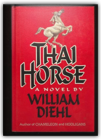
Primal Fear

House of Cards, and the sequel To Play The King

Final Cut, The

Goodfellowe MP

To Play the King

Buddha of Brewer Street, The

Never Surrender

Churchill's Triumph

First Lady

Lords' Day, The

Teach Yourself Books: Judo

Mordant's Need - - The Mirror of Her Dreams

Mordant's Need - - A Man Rides Through

Gap, Pt. - Gap into Conflict: The Real Story

Gap, Pt. - The Gap into Vision: Forbidden Knowledge

Gap, Pt. - Gap into Power: A Dark and Hungry God Arises

Gap, Pt. - The Chaos and Order: The Gap into Madness

Thomas Covenant, Pt. : Runes of the Earth
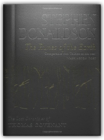
Thomas Covenant, Pt. : Against All Things Ending: The Last Chronicles of Thomas Covenant

Conan Doyle Stories, The

Return of Sherlock Holmes, The

A Study in Scarlet and The Hound of the Baskervilles
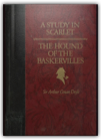
Sherlock Holmes: Long Stories

Sherlock Holmes Short Stories

A Natural Curiosity

Three Musketeers, The

Demon Lord of Karanda

Domes of Fire

Air Babylon

Beach Babylon

Pop Babylon

Wedding Babylon

Hotel Babylon

Lunar Park

Gridlock

This Other Eden (BCA)

Popcorn

Inconceivable (BCA)

Blast from the Past (BCA)

Blast From The Past is the fifth novel from Ben Elton, the celebrated and controversial comedian/playwright/author whose TV credits include The Young Ones and Blackadder as well as the previous novels Stark and Popcorn. Jack Kent, US Captain stationed at Greenham Common during the early eighties, has a secret and unlikely affair with the Polly Sacred Cycle of the Womb and Moon, a 17-year-old ideological peace protester: the star-crossed lovers made Romeo and Juliet look like an arranged marriage! Pamela Anderson and the Ayatollah Khomeni would have made a more natural-looking couple. Sixteen years later and a four star General, Kent returns to Britain to seek out his only true love. Polly, now a lonely thirtysomething Equal Opportunities employee, is being stalked by the Bug when the phone rings. Set in the staid, politically-correct nineties of New Labour Britain, the story flashes back with comic effect to the early eighties, a time of protest, strikes and Cold War. While hardcore Elton fans might be disappointed with the weak plot and smaller helpings of piercing wit and wacky socio-political observations, Blast from the Past still offers up some laugh-out-loud lines and entertaining reading. —Andrew Crawford Dead Famous

High Society

Elton's cast of characters is massive, but all (notably a government minister who is trying to push through a bill to legalise drugs) are etched in with maximum vividness. Interestingly, although Elton casts a cold eye across the whole of society (including an unforgiving look at the media) the final effect of the book is anything but bleak. All the trademark wit is here, along with a sense of focus that is considerably more sophisticated than anything Elton has tackled before. As a serious satirical novel (yes, there is such a thing), High Society makes an indelible mark. —Barry Forshaw Past Mortem

First Casualty, The

Chart Throb

Blind Faith

Meltdown

Meltdown

Dust of Dreams

Crippled God, The: The Malazan Book of the Fallen 10

Seven Up

Hard Eight

11: Eleven on Top

12: Twelve Sharp

Motor Mouth

Plum Lovin': A Stephanie Plum Novel

Lean Mean Thirteen

Fearless Fourteen

15: Finger Lickin' Fifteen

Sizzling Sixteen

On Her Majesty's Service

A Life is Too Short

Chambers Scottish Drink Book

Arthur C. Clarke's World Of Strange Powers (BCA)

Compulsive Spike Milligan, The

Devil May Care

Devil May Care has already collected a jaw-dropping amount of publicity, with even the Royal Navy helping to put the book firmly at the top of the best-seller charts (Bond is, of course, a naval commander), and few books have had such wind under their sails (the relaunch of the movie franchise with the re-make of Casino Royale and Daniel Craig's second Bond film, Quantum of Solace, is all part of the ever-accelerating momentum). Of course, this also gives the book farther to fall if it misses the mark. Faulks' author credit on the book ('Sebastian Faulks writing as Ian Fleming') is both revealing and encouraging – the author has reportedly said that he undertook the task with total seriousness, and he has tried to work within the parameters of the Ian Fleming formula (Faulks re-read all the extant Bond novels and stories) rather than the more glossy film incarnation. Among several very canny moves by the author is his decision to keep his 007 in the 1960s rather than catapulting him into the 21st century (as other ersatz Fleming novels – and, of course, the films — have done. So how successful are the results? Fleming aficionados can relax – this is a sterling job of recreation, and a novel that functions with total authority in its own right. The evocation of time and place (or places, notably Paris and the Middle East) is impeccable, as are the plotting and detail (as colourful and violent as anything in Fleming); there is a satisfyingly unpleasant larger-than-life villain, Julius Gorner, with a grotesque deformity of the kind Fleming often gave such characters (the chapter 'The monkey's hand' gives this away) and grandiose, evil ambitions. Best of all, this is Ian Fleming's James Bond – not a superman — worried about his health and his physical powers (which he fears may be on the wane). Delicious stuff in fact. Now... can Faulks be persuaded to write another such novel? —Barry Forshaw. What Are These Strawberries Doing On My Nipples?: I Need Them For The Fruit Salad!

My Story

Bridget Jones's Diary: A Novel (BCA)

At the beginning of Helen Fielding's exceptionally funny second novel, the thirtyish publishing puffette is suffering from postholiday stress syndrome but determined to find Inner Peace and poise. Bridget will, for instance, "get up straight away when wake up in mornings." Now if only she can survive the party her mother has tricked her into—a suburban fest full of "Smug Marrieds" professing concern for her and her fellow "Singletons"—she'll have made a good start. As far as she's concerned, "We wouldn't rush up to them and roar, 'How's your marriage going? Still having sex?'" This is only the first of many disgraces Bridget will suffer in her year of performance anxiety (at work and at play, though less often in bed) and living through other people's "emotional fuckwittage." Her twin-set-wearing suburban mother, for instance, suddenly becomes a chat-show hostess and unrepentant adulteress, while our heroine herself spends half the time overdosing on Chardonnay and feeling like "a tragic freak." Bridget Jones's Diary began as a column in the London Independent and struck a chord with readers of all sexes and sizes. In strokes simultaneously broad and subtle, Helen Fielding reveals the lighter side of despair, self-doubt, and obsession, and also satirizes everything from self-help books (they don't sound half as sensible to Bridget when she's sober) to feng shui, Cosmopolitan-style. She is the Nancy Mitford of the 1990s, and it's impossible not to root for her endearing heroine. On the other hand, one can only hope that Bridget will continue to screw up and tell us all about it for years and books to come. —Kerry Fried Bridget Jones : The Edge of Reason

If that isn't enough, Richard "I'm thinking bunny girl! I'm thinking Gladiator! I'm thinking canvassing MP!" Finch, Bridget's smarmy, cocaine-encrusted boss and Executive Producer of Sit Up, wants her to be the show's clown, in effect making her the arse of television. What's more, a builder who has an obsession for large, slimy fish seems to have forgotten about the hole he knocked out in her flat, putting her entire life on display for the neighbours. Not to mention a mother who wants her to go to see Ms. Saigon with a Kikuya tribesman hijacked from Kenya. Never fear, Bridge's singleton posse—Shazzer, Jude and Tom—are always a phone call away and armed with bottles of Chardonnay, packs of Silk Cut, pizza and a cornucopia of self-help literature. Whether they're decoding acronyms in singles ads (GSOH and WLTM? "Giant sore on head. Willy, limp, thin mollusc."), developing the ground-breaking "Pashima theory" or dolling out unsolicited advice, the FOBs (friends of Bridget) make up most of the comedy. Although The Edge of Reason is filled with signature B.J. manoeuvres, such as drunken Christmas card writing and wearing an unruly rubber girdle, it's a departure from the original. Throughout most of its 422 pages the plot clips at a steady rate, then, much like Bridget's train of thought, the ending skitters, careens and breaks off into two incoherent tracks—one more absurd than the other. The outcome is a metamorphosed Bridget, one more reminiscent of a British Alley McBeal than the personification of England's everywoman. —Rebekah Warren Brain Matters: Adventures of a Brain Surgeon: Dispatches from Inside the Skull

Tender is the Night

Foggy

He is the major box office attraction of the increasingly popular World Superbike Championship, which he has won a record four times, amongst other world crowns. In 1999, an amazing 120,000 fans turned up to watch him race at Brands Hatch. Foggy is a typically frank account of the transformation from a shy awkward teenager to the self-assured celebrity and Superbike legend. It details the dangers of his sport, personal tragedies, the hell-raising years and the sport's unique sex appeal. But Fogarty is essentially a family man and he has retained his roots in the Lancashire town of Blackburn, where he lives with his wife Michaela and his two daughters. The book provides a unique insight the big money deals that have made him a multi-millionaire and the problems that go hand in hand with such wealth. Track rivals are not spared the forthright Fogarty treatment in some startling revelations about the cut-and-thrust world of his profession. Most of all, though, he displays an ability to laugh at himself, one of the endearing charms that makes Carl Fogarty's life story a rollercoaster ride of humour and emotion. Shockwave (BCA)

Precipice, The (BCA)

Rhinoceros

Vorpal Blade, The

A series of grisly murder cases land on Tweed’s desk and he's obliged to revert to his role as Homicide Superintendent at the Yard. But he's still Deputy Director of the SIS and he can call on his usual team. As he realises the imposing organisation that's behind the systematic slayings, he travels from Bray in Britain to Maine in the USA (via Montreux and Switzerland) and finds he's dealing with no-one less than Russell Straub, the US vice president. Straub may soon be the most powerful man in the world—but what is his connection with the bizarre Arbogast family? It's Tweed's colleague, the shrewd and tough Paula Grey, who finally tracks down the knife-wielder—with terrifying results. Forbes' breathtaking productivity (this is his 28th novel) has never led him into mere by-rote word spinning (unlike several of his contemporaries) and this is a dizzying ride of a thriller, barrelling unstoppably to a grim closure. —Barry Forshaw Fourth Protocol (BCA)

A Death Divided

Bad Memory: A Novel of Computer Suspense

Social Psychology with SocialSense CD-ROM and PowerWeb
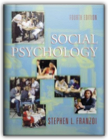
Trick of It, The

Hippopotamus, The

Stars' Tennis Balls, The

Few writers can deliver so much in one package, but here Stephen Fry combines a riotous satire of the privileged classes with elements of the darkest thrillers. While the plot bounces from the sublime to the surreal, his characters remain acutely real. Ned's classmates, slow-witted hedonist Rufus Cade, and the Machiavellian climber Ashley Barson-Garland—who is aroused by the sight of straw boaters—are masterful creations. This novel has nothing to do with tennis, and everything to do with the cruel logic of Fate. Game, set and match to Mr Fry. - - Matthew Baylis Fry Chronicles, The

Glimpse of Stocking

Taboo

Smoke and Mirrors

(Gaiman, Neil) Anansi Boys

Sandman, The: Book of Dreams

In Preludes and Nocturnes, Neil Gaiman weaves the story of a man interested in capturing the physical manifestation of Death but who instead captures the King of Dreams. By Gaiman's own admission there's a lot in this first collection that is awkward and ungainly—which is not to say there are not frequent moments of greatness here. The chapter "24 Hours" is worth the price of the book alone; it stands as one of the most chilling examples of horror in comics. And let's not underestimate Gaiman's achievement of personifying Death as a perky, overly cheery, cute goth girl! All in all, there is a roguish breaking of new ground in this book which is preferable to the often dull precision of the concluding volumes of the Sandman series. —Jim Pascoe Good Omens: The Nice and Accurate Prophecies of Agnes Nutter, Witch

Politically Correct Bedtime Stories: A Collection of Modern Tales for Our Life and Times

Gazza: My Story

Business at the Speed of Thought: Using a Digital Nervous System

The book is peppered with examples of companies that have already successfully engineered information networks to manage inventory, sales, and customer relationships better. The examples run from Coca-Cola's ability to download sales data from vending machines to Microsoft's own internal practices, such as its reliance on e-mail for company-wide communication and the conversion of most paper processes to digital ones (an assertion that seems somewhat at odds with the now-infamous "by hand on sheets of paper" method of tracking profits that was revealed during Microsoft's antitrust trial). While Gates breaks no new ground—dozens of authors have been writing about competing on a digital playing field for some time, among them Carl Shapiro and Hal Varian in Information Rules and Patricia Seybold in Customers.com—businesses that want a wakeup call may find this book a ringer. With excerpts in Time magazine, a dedicated Web site and an all-out media assault, Microsoft is working hard to push Business @ the Speed of Thought into the international dialogue and for many it will be difficult to see the book as anything but a finely tuned marketing campaign for the forthcoming versions of Windows NT and MS Office. Nevertheless, as Gates has shown time and time again, he, Microsoft, and perhaps even this book you may ignore at your own peril. —Harry C. Edwards, Amazon.com Road Ahead, The

Tales Of The Drenai: Druss: The First Chronicles Of Druss The Legend

Ironhand's Daughter

Dark Moon

Tales Of The Drenai: Druss: The Legend of Deathwalker

Tales Of The Drenai: Winter Warriors

Echoes of the Great Song

Rigante, Pt.1: Sword In The Storm

Rigante, Pt.2: Midnight Falcon

Hounded from the country of his birth, Bane found acceptance across the seas–only to have it stripped away in an instant by a cruel and deadly swordsman. Now fighting as a gladiator in the blood-soaked arenas of the Empire, Bane lives for one thing: revenge. And he pursues his goal with the same single-minded determination that won his father a crown. But more is at stake than a young warrior’s quest for vengeance. The armies of the Stone are preparing to march on the lands of the Rigante. The fate of human and Seidh alike will be decided by the clash of swords–and by the bonds of twisted love and bitterness between a father and a son . . . From the Paperback edition. Tales Of The Drenai: Waylander, Pt.3: Hero In The Shadows

Tales Of The Drenai: Drenai Tales, Pt.1 -

Rigante, Pt.3: Ravenheart

RAVENHEART Eight hundred years have passed since King Connavar of the Rigante and his bastard son, Bane, defeated the invading army of Stone. In that time, Connavar has become a legend, and the Rigante have lost the freedom so many gave their lives to preserve. A conquered people, they live and die under the iron rule of the Varlish, their culture all but destroyed. The laws are oppressive and severely enforced: No Rigante can own a sword nor wear the clan colors. Any who disobey the law will answer to the Moidart, the cruel and vengeful Lord of Eldacre Castle. They will answer with the swift punishment of death. Only one woman remains who follows the ancient paths once trod by the Rigante. She is the Wyrd of Wishing Tree Wood–and she alone knows the nature of the evil soon to be unleashed on a doomed and unsuspecting world. In a perilous land, facing an uncertain future, the Wyrd finds her initial hopes pinned on two men: Jaim Grymauch, the giant Rigante fighter, a man haunted by his failure to save his best friend from betrayal; and Kaelin Ring, a youth whose deadly talents will earn him the rancor of all Varlish. One will become the Ravenheart, an outlaw leader whose daring exploits will inspire the Rigante. The other will forge a legend–and light the fires of revolution. But in truth, all hope may ultimately rest on a third man: a man who must overcome generations of fear and hatred to fulfill his destiny. With the blood of Connavar the King running through his veins, he is a Varlish nobleman. But even worse–he is the son of the Rigante’s most brutal enemy. Rigante, Pt.4: Stormrider

STORMRIDER A Novel of the Rigante Centuries ago, Connavar’s triumphant battles against the invading army of Stone gained the Rigante their freedom, yet magic that once flourished has been all but snuffed out. The Varlish king and his barons have stolen Rigante lands and robbed the people of their culture and liberty. From the Rigante's former seat of power the black-hearted Moidart rules; only in the north are the clansmen free. There, in the Druagh mountains, the magic still reigns, strengthened by bold, brilliant victories of the outlaw leader known as Ravenheart. One glorious spark, one moment of Rigante rebellion, has ignited a revolution and forged a legend. The conquered clans set about to rediscover their greatness–yet theirs is not the only call to arms. In the south, civil war has drenched the land in blood, and the armies of destruction have begun creeping north. There the brooding Ravenheart waits, knowing the forces of the hated Moidart will come, led by the brutal ruler’s only son, Stormrider. Ravenheart and Stormrider: enemies of uncommon courage, are unaware that the fate of the world lies in their hands. Faced with this inexorable advance, deadly foes will be forced to unite, and a secret lost in the uncharted past will return to haunt these two warriors as they face the vengeance of an ancient evil. Immense armies of darkness advance on the highlanders, and it seems as if nothing will stop them. They crush their enemies with ease, until only a few thousand men stand before them, with no help in sight. But these are not ordinary men they face. They are clansmen, and more than that, they are Rigante. Tales Of The Drenai: Skilgannon, Pt.1: White Wolf

Skilgannon the Damned had vanished from the pages of history. No-one knew where he had gone, following the terrible triumph at Perapolis, and the assasins sent by the Witch Queen could find no trace of his passing. Three years later, a murderous mob gathers outside a monastery, faced by a single, unarmed priest. In a few terrifying seconds their world is changed for ever, and word spreads across the lands of the East — Skilgannon is back. Now he must travel across a perilous, demon-haunted realm seeking a mysterious temple and the ageless goddess who rules it. With assassins on his trail and an army of murderous foes ahead, the Damned sets off on a quest to bring the dead to life. But he does not travel alone. The man beside him is Druss the Legend. In this tale of love, betrayal and treachery, in a world torn by war, White Wolf examines the nature of heroism and friendship and the narrow lines dividing good and evil. From the Trade Paperback edition. Troy, Pt.1: Lord of the Silver Bow

Troy, Pt.2: The Shield of Thunder

Troy, Pt.3: Fall of Kings

On the killing fields outside the golden city of Troy, forces loyal to the Mykene King mass. Among them is Odysseus, fabled storyteller and reluctant ally to the Mykene, who knows that he must soon face his former friends in deadly combat. Within the city, the Trojan king waits. Ailing and bitter, his hope is pinned on two heroes: his favourite son Hektor, and the dread Helikaon who will wreak terrible vengeance for the death of his wife at Mykene hands. War has been declared — a war filled with bloodlust, and peopled by heroes who will live forever in a story that will echo down the centuries. From the Paperback edition. Jon Shannow, Pt.: Bloodstone

Tales Of The Drenai: Skilgannon, Pt.2: The Swords Of Night & Day

Mephisto Club, The

Christmas in Boston brings horror rather than good cheer when a woman's body is found dismembered in a crime scene that leaves even hardened cops queasy. Doctor Maura Isles is assigned to the case, but soon another brutal murder takes place: a woman has been mutilated and murdered on Beacon Hill, near the home of the director of the Mephisto Club. This is a clandestine society whose subject is the study of evil — and its agenda is to confront it in its most unadulterated forms. As Detective Jane Rizzoli becomes involved, it’s quickly apparent that both women (no strangers to the bloodiest extremes of human cruelty) are up against something which is close to a distillation of the purest evil. This isn't quite Tess Gerritsen on her very best form, but it’s still more compelling and audacious than most thrillers being written today. The legions of Tess Gerritsen fans need not hesitate. —Barry Forshaw Neuromancer

Zero History

Rites of Passage

Lord of the Flies. Pincher Martin. Rites of Passage

Memory Lane

He has few good memories of the slammer, though he did form a friendship with Garret, a con who was doing twenty-five years for robbing an armoured car and murdering the guards. Garret’s partner in the heist, Billy, got away with two hundred and twenty thousand dollars, but was later found dead – and penniless. The money was never recovered. Garret’s life in prison revolved around his relationship with his girlfriend, Shannon. Over the years, as Garret told Ross the stories of their romance over and over again, Ross had come to feel he knew Shannon as well as if he had been her boyfriend. When Garret, still doing time, died of stomach cancer, Ross and Shannon became pen pals. Now he’s out, and she’s eager to see him and relive events that strangely mirror her relationship with Garret. Is Shannon falling in love with Ross? Or is it his connection with Garret and the missing money that she finds so alluring? Meanwhile,Vancouver police detectives Jack Willows and Claire Parker are investigating the murder of a city police officer, who had a very arcane sex life. But is that the key to his death? Once again, Laurence Gough brilliantly evokes the sights and sounds of Vancouver, as Willows and Parker do whatever it takes to solve the murder of a fellow cop, no matter where the investigation leads them… Ravens of the Moon, The

Red Dwarf: Backwards

Colony

Men Are From Mars, Women Are From Venus

Down Among the Dead Men

48 Laws Of Power, The
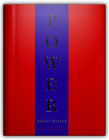
The laws cull their principles from many great schemers—and scheming instructors— throughout history, from Sun-Tzu to Talleyrand; from Casanova to con man Yellow Kid Weil. They are straightforward in their amoral simplicity: "Get others to do the work for you, but always take the credit," or: "Discover each man's thumbscrew." Each chapter provides examples of the consequences of observance or transgression of the law, along with "keys to power," potential "reversals" (where the converse of the law might also be useful), and a single paragraph cleverly laid out to suggest an image (such as the aforementioned thumbscrew); the margins are filled with illustrative quotations. Practitioners of one-upmanship have been given a new, comprehensive training manual, as up-to-date as it is timeless. Blessings in disguise

Curious Incident of the Dog in the Night-time, The
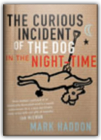
Christopher is an intelligent youth who lives in the functional hinterland of autism—every day is an investigation for him because of all the aspects of human life that he does not quite get. When the dog next door is killed with a garden fork, Christopher becomes quietly persistent in his desire to find out what has happened and tugs away at the world around him until a lot of secrets unravel messily. Haddon makes an intelligent stab at how it feels to, for example, not know how to read the faces of the people around you, to be perpetually spooked by certain colours and certain levels of noise, to hate being touched to the point of violent reaction. Life is difficult for the difficult and prickly Christopher in ways that he only partly understands; this avoids most of the obvious pitfalls of novels about disability because it demands that we respect—perhaps admire—him rather than pity him. —Roz Kaveney A Spot of Bother
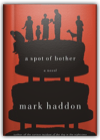
Lazy Lion
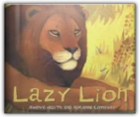
Drop the Dead Donkey 2000

Emergence

Roy Stuart: v. 2

Michael Moore is a Big Fat Stupid White Man

Far From The Madding Crowd

Archangel: A Novel

Archangel tells the story of four days in the life of Fluke Kelso, a dissipated, middle-aged former Oxford historian, who is in Moscow to attend a conference on the newly opened Soviet archives. One night, Kelso is visited in his hotel room by an old NKVD officer, a former bodyguard of the secret police chief Lavrenty Beria. The old man claims to have been at Stalin's dacha on the night Stalin had his fatal stroke, and to have helped Beria steal the dictator's private papers, among them a notebook. Kelso decides to use his last morning in Moscow to check out the old man's story. But what starts as an idle inquiry in the Lenin Library soon turns into a murderous chase across nighttime Moscow and up to northern Russia—to the vast forests near the White Sea port of Archangel, where the final secret of Josef Stalin has been hidden for almost half a century. Archangel combines the imaginative sweep and dark suspense of Fatherland with the meticulous historical detail of Enigma. The result is Robert Harris's most compelling novel yet. Silence Of The Lambs, The

Hannibal: A Novel

In one of the most eagerly anticipated literary events of the decade, Thomas Harris takes us once again into the mind of a killer, crafting a chilling portrait of insidiously evolving evil—a tour de force of psychological suspense. Seven years have passed since Dr. Hannibal Lecter escaped from custody, seven years since FBI Special Agent Clarice Starling interviewed him in a maximum security hospital for the criminally insane. The doctor is still at large, pursuing his own ineffable interests, savoring the scents, the essences of an unguarded world. But Starling has never forgotten her encounters with Dr. Lecter, and the metallic rasp of his seldom-used voice still sounds in her dreams. Mason Verger remembers Dr. Lecter, too, and is obsessed with revenge. He was Dr. Lecter's sixth victim, and he has survived to rule his own butcher's empire. From his respirator, Verger monitors every twitch in his worldwide web. Soon he sees that to draw the doctor, he must have the most exquisite and innocent-appearing bait; he must have what Dr. Lecter likes best. Powerful, hypnotic, utterly original, Hannibal is a dazzling feast for the imagination. Prepare to travel to hell and beyond as a master storyteller permanently alters the world you thought you knew. Megamogs, The
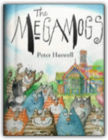
A Brief History of Time, From the Big Bang to Black Holes

Treatment, The (BCA)

Skin

Gone

Tales of the Otori, Pt.1: Across the Nightingale Floor

Torvill & Dean

Legends Of Dune, Pt.1: The Butlerian Jihad (BCA)

Great Dune Trilogy, The: Dune, Dune Messiah, Children of Dune

God Emperor of Dune

Millennia have passed on Arrakis, and the oncedesert planet is green with life. Leto Atreides, the son of the world’s savior, the Emperor Paul Muad’Dib, is still alive but far from human. To preserve humanity’s future, he sacrificed his own by merging with a sandworm, granting him nearimmortality as God Emperor of Dune for the past 3,500 years. Leto’s rule is not a benevolent one. His transformation has not only made his appearance inhuman, but his morality. A rebellion has risen to oppose the despot’s rule, led by Siona, a member of the Atreides family. But Siona is unaware that Leto’s vision of a Golden Path for humanity requires her to fulfill a destiny she never wanted…or could possibly conceive… Heretics of Dune

Now, the Lost Ones are returning home in pursuit of power. And as factions vie for control over the remnants of the Empire, a girl named Sheeana rises to prominence in the wastelands of Rakis, sending religious fervor throughout the galaxy. For she possesses the abilities of the Fremen sandriders-fulfilling a prophecy foretold by the late God Emperor... Chapterhouse: Dune

The desert planet Arrakis, called Dune, has been destroyed. The remnants of the Old Empire have been consumed by the violent matriarchal cult known as the Honored Matres. Only one faction remains a viable threat to their total conquest-the Bene Gesserit, heirs to Dune's power. Under the leadership of Mother Superior Darwi Odrade, the Bene Gesserit have colonized a green world on the planet Chapterhouse, and are turning it into a desert, mile by scorched mile. And once they've mastered breeding sandworms, the Sisterhood will control the production of the greatest commodity in the known galaxy-the spice Melange. But their true weapon remains a man who has lived countless lifetimes-a man who served under the God Emperor Paul Muad'Dib. Domain

Creed

Where's Spot?

Fool's Errand

A work of dazzling scope, brilliance, and sheer imaginative artistry, Fool’s Errand is the captivating story of a man finally confronting the two magics that divide not only himself but his land. Fool’s Errand For fifteen years, since the events that shattered his old life, FitzChivalry Farseer has lived in a self-imposed exile, assumed to be dead by almost all who once cared about him. A bastard with royal Farseer blood, he has retreated to an isolated cottage far from the intrigues and dangers of the capital. Now he believes himself content to exist in obscurity, raising his adopted son, Hap, and sharing his solitude with his faithful wolf bondmate, Nighteyes. Despite the rumors he hears of savage reprisals against those posssessing the Wit magic, he is determined to remain aloof from the conflict. After all he has served his kingdom, sacrificed what was dearest to him, and he deserves his peace. But all that is about to change when destiny comes seeking him once again. High summer brings visitors to his door, and with them his past. Jinna, a hedge-witch, foresees that a long-lost love will return to him. Chade — court assassin and Fitz’s mentor from his own assassin days, now growing infirm — has reasons of his own for desiring Fitz to return to Buckkeep Castle. And when the Fool, the former White Prophet, reappears as the wealthy and charming Lord Golden, he beckons Fitz to take up his duties as Catalyst, the one who enables others to be heroes and change forever the path of time. To all of them Fitz says no. He has done his duty — more than one man should be expected to do. But then comes the summons he cannot ignore. Prince Dutiful, the young heir to the Farseer throne, has vanished from Buckkeep Castle without a trace. Whether Dutiful has been kidnapped or has fled his impending arranged betrothal is unclear. What is clear is that the Prince is rumored to be Witted at a time when public superstition is running high against those possessing that “beast magic.” Endowed with both the royal Skill magic and the despised Wit, FitzChivalry may be the only one who can retrieve the Prince before his betrothal ceremony — thus sparing the Six Duchies profound political embarrassment ... or worse. But even Fitz does not suspect the web of treachery that awaits him. Everyone seems to have an agenda for the young Prince, and soon FitzChivalry is plunged into a situation where his loyalties to his Queen, his Wit partner Nighteyes, and those who share his magic will be tested to the breaking point. Golden Fool

Now, in Book 2 of her most stunning trilogy yet, Hobb continues the soul-shattering tale of FitzChivalry Farseer. With rich characters, breathtaking magic, and sweeping action, Golden Fool brings the reluctant adventurer further into the fray in an epic of sacrifice, salvation, and untold treachery. Golden Fool Prince Dutiful has been rescued from his Piebald kidnappers and the court has resumed its normal rhythms. But for FitzChivalry Farseer, a return to isolation is impossible. Though gutted by the loss of his wolf bondmate, Nighteyes, Fitz must take up residence at Buckkeep and resume his tasks as Chade’s apprentice assassin. Posing as Tom Badgerlock, bodyguard to Lord Golden, FitzChivalry becomes the eyes and ears behind the walls. And with his old mentor failing visibly, Fitz is forced to take on more burdens as he attempts to guide a kingdom straying closer to civil strife each day. The problems are legion. Prince Dutiful’s betrothal to the Narcheska Elliania of the Out Islands is fraught with tension, and the Narcheska herself appears to be hiding an array of secrets. Then, amid Piebald threats and the increasing persecution of the Witted, FitzChivalry must ensure that no one betrays the Prince’s secret—a secret that could topple the Farseer throne: that he, like Fitz, possesses the dread “beast magic.” Meanwhile, FitzChivalry must impart to the Prince his limited knowledge of the Skill: the hereditary and addictive magic of the Farseers. In the process, they discover within Buckkeep one who has a wild and powerful talent for it, and whose enmity for Fitz may have disastrous consequences for all. Only Fitz’s enduring friendship with the Fool brings him any solace. But even that is shattered when unexpected visitors from Bingtown reveal devastating secrets from the Fool’s past. Now, bereft of support and adrift in intrigue, Fitz’s biggest challenge may be simply to survive the inescapable and violent path that fate has laid out for him. Shaman's Crossing

Fool's Fate

Left Hand of God, The

Propaganda: Photographs from Soviet Archives

Bad Heir Day

Fame Fatale

Azur Like It

The only intrepid reporter in her hometown hamlet, Kate Clegg has dreams of parlaying her dead-end job at the Mercury, or Mockery, as it is affectionately known, into an award-winning career with the most celebrated papers in London. But things seem to be going in the toilet, literally, since her biggest break thus far has been investigating a drainage disaster at the local high school. At least things can't get worse... That is until shady billionaire Peter Hardstone pulls up outside the Mercury's tiny storefront office in his gold Ferrari and begins firing the staff. Soon enough, Kate herself decides that leaving the Mockery behind may just be the best career move she'll ever make-until Hardstone's wildly attractive son, Nat, takes up residence at the Mercury's office with an offer Kate cannot refuse-a chance to cover the Cannes Film Festival on the luxurious Côte d'Azur. With internationally acclaimed author Wendy Holden's signature verve, intelligence, and originality, Azur Like It is a rollicking ride through the parties, haute couture, and glamour of the French Riviera where, behind the glitz, lies a mystery that would make even the most jaded journalist salivate. School for Husbands, The

Filthy Rich

Beautiful People

This Is My Life

Odds and Gods

Prisoner of Zenda, The

Triple Platinum : Fever Pitch; High Fidelity; About a Boy

How to be Good

Mr Hornby fires his central theme at us from the title page: how can we be good, and what does that mean? But, quite apart from demanding that his readers scrub their souls with the nearest available Brillo pad, he also mesmerises us with that cocktail of wit and compassion which has become his trademark. The result is a multi-faceted jewel of a book: a hilarious romp, a painstaking dissection of middle-class mores, and a powerfully sympathetic portrait of a marriage in its death throes. It's hard to know whether to laugh or cry as we watch David forcing his kids to give away their computers, drawing up schemes for the mass redistribution of wealth and inviting his wife's most desolate patients round for a Sunday roast. But that's because How To Be Good manages to be both brutally truthful and full of hope. It won't outsell the Bible, but it's a lot funnier. —Matthew Baylis Rewired: An Opinionated Web History
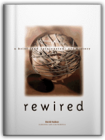
Bone People, The

Steve Jobs: The Exclusive Biography

Dead Headers

Thursdays Legends

Fallen Gods

Unnatural Justice

Slovakia

Honest

Wheel Of Time, Pt.1: The Eye of the World

Jordan didn't become a bestselling author merely by mixing up traditional ingredients; a master storyteller, he ingeniously gives unusual twists to these conventional fantasy elements. He also excels in the descriptive and narrative skills needed to create a detailed and coherent imaginary world. The many lands he portrays are vast in scope and contain amazingly varied countries and peoples, while retaining the inner coherence needed to make them satisfying places for a fantasy fan to roam around in. However, Jordan's writing never attains the subtlety or sophistication of, say, George RR Martin and there are some annoying stylistic tics: he seems unable to introduce a female character without commenting on her neckline and thereafter has them forever smoothing their dresses. To his publisher's credit, Jordan's books are fortunate among fantasy novels in not having covers that look like an explosion of a teenager's bedroom. The absence of such lurid artwork is, perhaps, part of their appeal. —David Pickering Wheel Of Time, Pt.2: The Great Hunt

Wheel Of Time, Pt.6: Lord of Chaos (BCA)

Conan Chronicles, The

Wheel Of Time, Pt.7: A Crown of Swords

Wheel Of Time, Pt.8: The Path Of Daggers

But with the previous book, Crown of Swords, and now with Path of Daggers, the series is in a bit of a holding pattern. Path continues the halting gait of the current plot line: Rand is still on the brink of losing it, all the while juggling the political machinations around him and again taking to the field against the Seanchan. The rest of the Two Rivers kids and company don't seem to be moving much faster. Egwene continues to slowly consolidate her hold as the "true" Amyrlin (finally getting closer to Tar Valon and the inevitable confrontation with Elaida), and Nynaeve and Elayne keep on wandering toward the Lion Throne, again on the run from the Seanchan. Mat Cauthon is barely mentioned and fellow ta'veren Perrin keeps busy with politics in Ghealdan. The ending does provide promise, though, that book nine might match the pace and passion of the previous books. If you're already hooked, you could sooner overcome a Weave of Compulsion than avoid picking up a copy of Path of Daggers. But if you're new to the series, start at the beginning with the engrossing, much-better-paced Eye of the World. —Paul Hughes Wheel Of Time, Pt.3: The Dragon Reborn

Wheel Of Time, Pt.9: Winter's Heart

Wheel Of Time, Pt.10: Crossroads of Twilight

This is a book with a fair amount of incident, but nothing you could really call a climax. One of Jordan's strengths has always been his ability to send things off at interesting and imaginative tangents, revealing that his is a stranger world than we have begun to know—there is not enough of that here, and rather too much in the way of confrontations and kidnappings and dilemmas of conscience that recapitulate things he has done before. His decent, lumbering "grey" style means that there are no moments when the writing thrills us either—this is a book for those who have committed to Jordan's sequence for the long haul rather than one for new readers to sample. —Roz Kaveney Wheel Of Time, Pt.0: New Spring: A Wheel of Time Prequel

Wheel Of Time, The - Pt.11: Knife Of Dreams (BCA)

Wheel Of Time, Pt.12: The Gathering Storm

Wheel Of Time, Pt.13: Towers of Midnight

Further Adventures of a London Call Girl, The

Cut short

Who Moved My BlackBerry?

Death Collectors, The

This Charming Man

Dolores Claiborne (BCA)

The story unfolds in one continuous chapter, told in the first person by the cranky, 65-year-old housekeeper, Dolores, who is explaining to police officers and a stenographer how and why she killed her husband, Joe, 30 years ago. At the same time, in her rambling monologue, she insists that she did not kill her longtime employer, Vera Donovan—notwithstanding what the residents of Little Tall Island may be whispering. Joe was a drinker, and, as Dolores gradually argues, he deserved to die for the horrifying crimes he committed against his family. But Vera, despite her cantankerous disposition as a lady governing her decaying estate with her precise rules about even the most mundane household chore ("Six pins! Remember to use six pins! Don't you let the wind blow my good sheets down to the corner of the yard!"), was a good woman—or at least not an evil one. She was the woman who hired the young Dolores and kept her on even after Dolores got pregnant again. Dolores cleaned and cared for her even as the old matron faded into senility. Dolores Claiborne is a rich novel that recalls the regionalist writing of the turn of the century. It is a fine place for a sceptical newcomer—put off by King's reputation for outright terror—to start. And for fans, it is a book that offers new insights into an author who's an old favourite. —Patrick O'Kelley Nightmares & Dreamscapes (BCA)

Sheep-Pig, The

Chewing the Cud

Shopaholic and Sister

Brotherhood, The: The Secret World of the Freemasons

In this incisive book, Stephen Knight goes behind the scenes of a tightly knit, all-male society, many of whose members hold very influential positions, all of whom are bound by fierce oaths of secrecy. Does Freemasonry discriminate in favor of its members when it comes to jobs, career promotions, and business? How compatible is Freemasonry with Christianity and Judaism? A large number of instances in this book show how and where masonic ideas of morality, charity, and fraternity have been abused. The secrecy that surrounds Freemasonry has traditionally been its greatest strength. Today it has become its own worst enemy. The revelations in this book will challenge many strongly held beliefs." Best of Bizarre
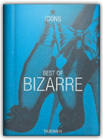
Exploring the World of Lucid Dreaming

Girl Who Played With Fire, The

Girl Who Kicked the Hornets' Nest, The

Inside Apple: The Secrets Behind the Past and Future Success of Steve Jobs's Iconic Brand

Lingerie: A Modern Girl's Guide

Rogue Trader

Sliver (BCA)

Apple Confidential 2.0: The Definitive History of the World's Most Colorful Company: The Real Story of Apple Computer, Inc.

Fugitive Game, The

Man on Platform Five, The

Book of General Ignorance, The

What the Dormouse Said: How the Sixties Counterculture Shaped the Personal Computer Industry

Thud!( Wile E. Coyote Experiments with Forces and Motion)[THUD][Library Binding]

Apothecary's House, The

Bigger Than Hitler, Better Than Christ

Is it Just Me or is Everything Shit?: The Encyclopedia of Modern Life

Freedom's Landing (BCA)

Freedom's Choice (BCA)

Changelings

Angela's Ashes And Tis

Papers of Tony Veitch, The

Bravo Two-Zero (BCA)

Immediate Action

Remote Control

Crisis Four

For all McNab's authentic detail—we get lots of information on how to kill people and survive attacks—reading Crisis Four is a bit like playing Tombraider on the computer. It's a compelling other world, where reality is only paid lip service to, but the action comes so thick and fast that you can't help turning the page. And this is what marks Crisis Four as a cut above the average thriller. It is an unashamedly blokeish book—you won't find much in the way of subtlety of characterisation—though compared to Dick Francis McNab is positively Henry James—and you have to put up with the odd few pages that read more like instruction manuals for military hardware than narrative, but these are relatively minor quibbles. So many times you get to the end of a thriller only to wonder why on earth you bothered; Crisis Four delivers on its promises. —John Crace Firewall

Spoken From The Front

Complete Book of Insults Ancient & Modern, The; An Amiable History of Insult, Invective, Imprecation & Incivility (Literary, Political & Historical) Hurled Through the Ages & Compiled as a Public Service.

Art of Video Games, The: From Pac-Man to Mass Effect
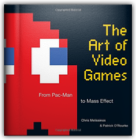
1421: THE YEAR CHINA DISCOVERED THE WORLD.

Complete Winnie the Pooh, The

Gone with the Wind

Art of Deception, The: Controlling the Human Element of Security

After Mitnick's first dozen examples anyone responsible for organisational security is going to lose the will to live. It's been said before but people and security are antithetical. Organisations exist to provide a good or service and want helpful friendly employees to promote the good or service. People are social animals who want to be liked. Controlling the human aspects of security means denying someone something. This circle can't be squared. Considering Mitnick's reputation as a hacker guru the least and last point of attack for hackers using social engineering are computers. Most of the scenarios in The Art of Deception work just as well against computer-free organisations and were probably known to the Pheonicians. Technology simply makes it all easier. Phones are faster than letters after all and large organisations mean dealing with lots of strangers. Much of Mitnick's security advice sounds practical until you think about implementation, when you realise more effective security means reducing organisational efficiency: an impossible trade in competitive business. And anyway, who wants to work in an organisation where the rule is "Trust no one"? Mitnick shows how easily security is breached by trust, but without trust people can't live and work together. In the real world effective organisations have to acknowledge total security is a chimera—and carry more insurance. —Steve Patient Revenge of the Rose, The (BCA)

Stupid White Men: ...and Other Sorry Excuses for the State of the Nation

Dude, Where's My Country?

Moore uses his trademark brand of confrontational, exasperated humour skilfully as he offers a primer on how to change the world view of one's annoying conservative blowhard brother-in-law, and he crafts a surprisingly thorough "Draft Oprah for President" movement. Refreshingly, Dude, Where's My Country? avoids being completely one-sided, identifying areas where Moore believes Republicans get it right and making some cutting criticisms of his fellow lefties. Such allowances, brief though they may be, make one long for a political climate where the shouting polemicists on both sides would see a few more shades of grey. Dude, Where's My Country? is a little bit scattered, as Moore tries to cram opinions on Iraq, tax cuts, corporate welfare, Wesley Clark and the Patriot Act into one slim volume—and the penchant to go for a laugh sometimes gets in the way of clear arguments. But such variety also gives the reader a broader range of his bewildered, enraged yet stalwartly upbeat points of view. —John Moe Secret of Anatomy, The (BCA)

Lingerie Tea

Fractions of Zero

Pub Landlord's Book of British Common Sense, The

Shape Your Self. My 6-Step Diet and Fitness Plan to Achieve the Best Shape of Your Life.

Run Time

Leap of Faith: Memoirs of an Unexpected Life

Darwin Awards, The: Evolution in Action

Darwin Awards II, The: More True Stories of How Dumb Humans Have Met Their Maker

At My Mother's Knee ...

At My Mother's Knee and Other Low Joints is an entertaining autobiography from someone who really does have a life that is worth writing about. Gossipy, sharp and colourful, the cast of characters in Paul O'Grady's life includes rogues and rascals galore, all of whom are evoked here with great comic skill. O'Grady was variously a boxer, a civil servant, a conman and even a cat burglar - all of these failed careers are on display here, as is a surprisingly pungent picture of the Liverpool nightclub scene. When so many showbiz autobiographies these days are written by people who have a barely had a life outside of their fame, it's refreshing to encounter one by somebody whose story would be interesting even if he were not a major TV star. —Barry Forshaw A Simples Life: The Life and Times of Aleksandr Orlov

Pop Art

Einstein in Love: A Scientific Romance

Himalaya

Naughty Girl's Guide to Life, The

Maximum Ride: The Angel Experiment

Pop Goes the Weasel

6th Target, The

Double Cross

7th Heaven

8th Confession

Swimsuit

Spirit Walker: Chronicles of Ancient Darkness - Bk. 2

Soul Eater: Chronicles of Ancient Darkness book 3: Bk. 3

Leave Before You Go

Celine Dion: The Complete Biography

Ocean Apart

An Ocean Apart

When his wife dies of cancer, David Costorphine finds himself totally unable to cope. Withdrawing from his three children and the family whiskey business, he escapes into his much-loved garden, establishing an order there that is not possible in the rest of his life. When he is forced by business to go to America, his rehabilitation begins when he meets the remarkable Jennifer and her son Benji. As he builds a relationship with both mother and son, a disturbing discovery forces him to return home and come to terms with the neglect he's been practising. Pilcher's prose is much more forceful and less elegiac than his mother's, but it's clear that he shares her narrative gifts. Slowly An Ocean Apart begins to exert an inexorable grip on the reader, and David's fate becomes a matter of concern and interest. —Barry Forshaw Starting Over

A Risk Worth Taking

September

End of Summer, The

Complete Pocket Positives, The: A Second Anthology of Inspirational Thoughts
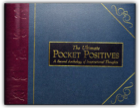
Zen and the Art of Motorcycle Maintenance

Monstrous Regiment

Nation

Discworld - 02 - The Light Fantastic

Discworld - 03 - Equal Rites

Discworld - 05 - Sourcery

Discworld - 08 - Guards! Guards!

Discworld - 16 - Soul Music

Discworld - 18 - Maskerade

Discworld - 19 - Feet Of Clay

Discworld - 20 - Hogfather

This year the Auditors, who want people to stop believing in things that aren't real, have hired an assassin to eliminate the Hogfather. (You know him: red robe, white beard, says, "Ho, ho, ho!") Their evil plot will destroy the Discworld unless someone covers for him. So someone does. Well, at least Death tries. He wears the costume and rides the sleigh drawn by four jolly pigs: Gouger, Tusker, Rooter and Snouter. He even comes down chimneys. But as fans of other Pratchett stories about Death know, he takes things literally. He gives children whatever they wish for and appears in person at Crumley's in The Maul. Fans will welcome back Susan, Death of Rats (the Grim Squeaker), Albert and the wizardly faculty of Unseen University and revel in new personalities like Bilious, the "oh god of Hangovers." But you needn't have read Pratchett before to laugh uproariously and think seriously about the meanings of Christmas. —Nona Vero, Amazon.com Discworld - 04 - Mort

Discworld - 17 - Interesting Times

Discworld - 21 - Jingo

Pratchett's characters are both sympathetic and outrageously entertaining, from Captain Carrot, who always finds the best in people and puts it to work playing football, to Sergeant Colon and his sidekick, Corporal Nobbs, who have "an ability to get out of their depth on a wet pavement". Then there is the mysterious D'reg, 71-hour Ahmed. What is his part in all this, and why 71 hours? Anyone who doesn't mind laughing themselves silly at the idiocy of people in general and governments in particular will enjoy Jingo. —Nona Vero Discworld - 22 - The Last Continent

If you're baffled by all this, no worries, mate. You needn't have read Pratchett before—not even the five previous Discworld novels starring Rincewind (The Colour of Magic, The Light Fantastic, Sourcery, Eric, and Interesting Times)—to enjoy this latest romp. Nor to have visited Australia. When you finish, however, you'll likely want to rush out and do both. —Nona Vero Discworld - 23 - Carpe Jugulum

The plot is a version of an earlier Discworld novel, Lords and Ladies, with the predatory elves of that novel being replaced here by suave and deadly vampires, and the tiny kingdom of Lancre being defended by its witches. But plot is the least of Pratchett's appeal, and Carpe Jugulum is loaded with marvellous characters (not least the witches themselves, about whom we learn a deal more here), comic touches and scenes of genius, and even some of the renowned down-to-earth Pratchett wisdom (here about the inner ethical conflicts we all face, and the wrongness of treating people as things). Pratchett's vampires are elegant Bela Lugosi types, and they come up against an unlikely but engaging alliance of witches, blue-skinned pixies like Rob Roy Smurfs, a doubting priest with a boil on his face and a magical house-sized Phoenix in a seamless, completely absorbing and feel-good-about-the- universe mixture. Highly recommended. —Adam Roberts Discworld - 24 - The Fifth Elephant

Pratchett is always at his best when the comedy is mixed with a real sense of jeopardy that even favourite characters might be hurt if there was a good joke in it. As always the most unlikely things crop up as the subjects of gags—Chekhov, grand opera, the Caine Mutiny—and as always there are remorselessly funny gags about the inevitability of story: "They say that the fifth elephant came screaming and trumpeting through the atmosphere of the young world all those years ago and landed hard enough to split continents and raise mountains. No one actually saw it land, which raised the interesting philosophical question: when millions of tons of angry elephant come spinning through the sky, and there is no one to hear it, does it—philosophically speaking—make a noise? As for the dwarfs, whose legend it is, and who mine a lot deeper than other people, they say that there is a grain of truth in it". All this, the usual guest appearances and Gaspode the Wonder Dog... — Roz Kaveney Discworld - 25 - The Truth

Discworld - 26 - Thief of time

As always, the sometimes startlingly surrealistically original, sometimes comfortingly groanworthy, jokes are underlain by some intensely complex ideas and tight plotting. Susan sto Helit makes a reappearance as one of Pratchett's more interesting heroines; the sinister Lady LeJean is one of Pratchett's most interesting villains, particularly once we learn the answer to the mystery about her. There is an attractive darkness to much of the humour here—Pratchett is often at his best when at his darkest.—Roz Kaveney Discworld - 27 - The Last Hero
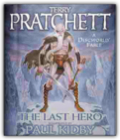
The 160 pages cover the series' longest and most awesome (but still comic) journey yet, a mission to save all Discworld from a new threat. An old threat, actually. Aged warrior Cohen the Barbarian has decided to go out with a bang and take the gods with him. So, with the remnants of his geriatric Silver Horde, he's climbing to the divine retirement home Dunmanifestin with the Discworld equivalent of a nuke—a 50-pound keg of Agatean Thunder Clay. This will, for excellent magical reasons, destroy the world. It's up to Leonard of Quirm, Discworld's da Vinci, to invent the technology that might just beat Cohen to his goal. His unlikely vessel is powered by dragons, crewed by himself and two popular regular characters, and secretly harbours a stowaway. Before long we hear the Discworld version of "Houston, we have a problem..." Kidby rises splendidly to the challenge of painting both funny faces and cosmic vistas. As Pratchett puts it, The Last Hero "has an extra dimension: some parts of it are written in paint!" New characters include Evil Dark Lord Harry Dread, who started out with "just two lads and his Shed of Doom", and a god so tiresome that his worshippers are forbidden chocolate, ginger, mushrooms and garlic. Pratchett's story alone is strong and effective, with several hair-raising frissons contrasting with high comedy; Kidby's paintings make it something very special. Don't miss this one. —David Langford Discworld - 29 - Night Watch

Discworld - 30 - The Wee Free Men

Miss Perspicacia Tick, a witch of some renown, is worried about a ripple in the walls of the universe—probably another world making contact. Which is not good. This errant activity is centred on some chalk country—where traditionally good witches simply do not grow well. Fortunately, Miss Tiffany Aching of Home Farm on The Chalk, nine years old, misunderstood and yearning for excitement, wants to be a witch and has just proved herself to be of great potential by whacking a big Green Monster from the river with a huge frying pan while using her annoying younger brother as bait. Miss Tick is impressed. So, after travelling to the chalky downs at once and dispensing some stop gap advice to Tiffany about holding the fort until she gets back with more help, Miss Tick is off. Any hesitation Tiffany may have had about the seriousness of the situation expires when the Queen of the fairies kidnaps her younger brother. With the help of a talking frog, loaned by Miss Tick, and an army of thieving, warmongering, nippy, boozy wee free men called the Nac Mac Feegle (who used to work for the Queen but rebelled), Tiffany sets off rescue her kin. There's humour at every turn, and the situations that follow are both wonderfully dramatic and preposterously unreal. Pratchett really is the master of his genre and it's difficult to imagine a more entertaining read. (Age 10 and over) —John McLay Discworld - 32 - A Hat Full of Sky

A Hat Full of Sky continues the adventures of eleven-year-old Tiffany as she endeavours to become a proper witch. She's 'done' magic before, quite spectacularly and to great effect, but now she must be apprenticed to an established practitioner of the craft, the amazing Miss Level, in order to learn exactly how she did it. Unfortunately for her, there's a crazed and malevolent ancient spirit buzzing about, called a Hiver, who is looking for a convenient host to consume. Hiver's are attracted to greatness, and Tiffany hides an enormous talent that seems ripe for domination. Still grateful for Miss Aching's past help, a crack team of several Wee Free Men, nature's funkiest, drunkest and bluest fairy folk, take it upon themselves to help Tiffany out. Hiver's, however, are unbeatable and it's a definite "sooey-side mission" to save the big wee hag from harm. It's great to see writing of such quality in a children's novel, and it's further evidence that this sector of the publishing world is having a bit of a golden decade. Long may it continue! (Age 10 and over)—John McLay Discworld - 33 - Going Postal

Discworld - 34 - Thud!

Discworld - 35 - Wintersmith

Discworld - 36 - Making Money

Discworld - 37 - Unseen Academicals

Discworld - - Snuff

Good Omens

Scaredy Cat

Paula: My Story So Far

Falls, The

When a student vanishes in Edinburgh, there is pressure on Rebus to find her, particularly as she is the scion of a family of extremely rich bankers. Needless to say, this is more than just the case of a spoilt rich girl breaking out of the cage of family responsibilities, and a carved wooden doll in a coffin found in her home village leads Rebus to the Internet role-playing game that she was involved in. And when DC Siobhan Clarke, a key member of Rebus' team, tackles the Virtual Quizmaster, Rankin finds himself struggling to save her from the same fate as the missing girl. Consummate plotting has always been Rankin's trademark, and that skill is put to maximum use here. The balance between developing the characterisation of the ill-assorted team of coppers that Rebus assembles and the labyrinthine twists of the plot is maintained with an iron hand, and Rankin's mordant eye remains as keen as ever: "You okay, John?" Curt reached out a hand and touched his shoulder. Rebus shook his head slowly, eyes squeezed shut. Curt didn't make it out the first time, so Rebus had to repeat what he said next: "I don't believe in heaven." That was the horror of it. This life was the only one you got. No redemption afterwards, no chance of wiping the slate clean and starting over. Rebus said "There is no justice in the world." "You'd know more about that than I would", Curt replied. —Barry Forshaw A Question of Blood

As always in Rankin's novels, Rebus's bad attitude to his superiors comes back to bite him: even though doctors testify that damage to his hands is a scalding from trying drunkenly to get into an over-hot bath, it is regarded as circumstantial evidence of his possible guilt. The high-school shooting looks at first sight like another ex-SAS crazy going wild—and here Rebus's own past as an SAS washout comes to haunt him—and the constant meddling of army investigators screams cover-up. In fact, though, this is one of those occasions on which Rebus's slightly paranoid preparedness to see connections everywhere pays off and he manages to solve both crimes and a lot of other unsuspected pieces of mayhem besides. Along the way, the book offers Rankin's usual intense commentary on embattled masculinity and what it means to be a Scot, and this excellent sequence's usual portrayal of an Edinburgh where modernity rubs up against time-worn slums and ancient privilege. —Roz Kaveney Fleshmarket Close

Much of the book is dominated by two new settings—a sink estate divided between racist thugs and refugees, and a small town whose economy is dominated by an internment camp for those about to be deported; this is one of Rankin's preachier thrillers, but it is never less than intelligent and evocative in its descriptions of a contemporary squalor that spreads beyond the inner city. These are never quite orthodox police procedurals—Rebus' method is a little too like the standard private eye's way of wandering around being rude to people until something comes loose—but they have a deep seriousness about the way we live now that transcends mere noir moodiness.—Roz Kaveney Flood, The

The Flood is not a crime novel. Mary Miller is an alienated young woman. As a child, she had had an accident involving a flood of chemical discharges from the local coal mine — she had survived, badly injured, but sympathy for her plight evaporated when the man who was responsible for the accident met his death in a mining accident shortly after. The pious community she lives in views her with superstitious dread. Time passes, and she gives birth to an illegitimate son, Sandy. Her unsatisfactory love affair with a teacher is going nowhere, and her son has started a relationship with a homeless girl. But both Sandy and his mother have to confront the past, and both find their lives will be changed by elemental forces — notably the flood of the title. As the above conveys, this is sombre stuff, but that won't put off Rankin aficionados, who look for the dark and disturbing in his work. While the book is (inevitably) not as fully achieved as his later work, there are many fascinating pre-echoes of the off-kilter psychology that is Rankin’s stock-in-trade, and any rough edges of the narrative are more than offset by the power of the already highly individual vision on offer here. —Barry Forshaw Dead Souls (BCA)

Exit Music

Book of Ultimate Truths, The

Nostradamus Ate My Hamster

Brentford Chainstore Massacre, The

ALIVE

Sun Boiled Onions
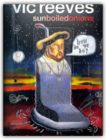
Like his TV series with sidekick Bob Mortimer, Sunboiled Onions has a surreal menace in its humour, reflected in Vic's weird drawings of famous figures, which are often uncannily accurate yet strangely disconcerting with their eyes drawn too far apart. Elvis crops up throughout the book, appearing as Sir Walter Raleigh in King Lear (naked from the waist down, of course), buying fan heaters from Argos with Frank Sinatra and ironing his slacks in his bucolic cottage. Alongside such reveries, Vic deals with the problems of his everyday life: "January 10—Flies swarm around the pork in my attic, so I get rid of it, all 150 lbs of it, in a ditch near B&Q". Along the way, Vic muses on various celebrities and their foibles, including Michael Jackson, Abba, Henry VIII, Eric Morecombe and Richard Nixon. Those who love Reeves and Mortimer will celebrate Sunboiled Onions as another manifestation of the genius of the man they call the Darlington Dadaist. —Jerry Brotton Deja Dead (BCA)

Reichs skilfully depicts police canteen culture and the way it ensures that someone who is an expert outsider, not one of the lads, is always going to have to go that extra mile to prove herself and her ideas. Brennan is a toughie, though, and not too fussy about demarcation disputes. Reichs has found a way of having her cake and eating it and giving us a detective who combines professional expertise with enthusiastic amateurism. Even more compellingly, the suspense is turned up several notches when Brennan realizes that she is hunted as well as hunter—they find the killer's lair and find her photograph among his trophies... —Roz Kaveney Death du Jour (BCA)

Something sinister is going on, and whether in Quebec, where she has her practice, or the sleepy South, where she teaches, Tempe is not safe. Reichs' first book was good on the domesticity and friendship to which Tempe retreats—and this time we meet her younger sister, Harriet, who has just got rid of her balloonist lover and is looking for a new interest. —Roz Kaveney Deadly Decisions (BCA)

Fatal Voyage (BCA)

Tempe is called in when a plane full of college athletes goes down in the remoter parts of the forests of North Carolina. She finds herself investigating a spare foot she rescued from coyotes, a foot which is significantly more decomposed than the crash victims and which has symptoms of gout, a disease most of the dead young people had no time to contract. There is a locked house and walled courtyard out in the woods that do not appear on any maps and it seems almost as if her simple knowledge of their being there has offended the powerful of the world. As always, Kathy Reichs manages to combine a detailed knowledge of who the dead were and how they died with a profound sense of the sadness of things. This is a book that never lets us forget amid the dissections and tests for genetic markers that each human death is that of a tragic and irreplaceable human being. Tempe is one of the more attractive of the current crop of women detectives simply because she is flawed and vulnerable as well as smart, righteous and brave. Reichs never lets you forget that crime novels should acquaint us with good people as well as human evil. —Roz Kaveney Bare Bones

Reichs knows how to keep the narrative ball rolling with a canny mix of plot developments, character delineation and scientific detail, all relayed via Tempe's smart, breezy, sarcastic voice. In fact, Bare Bones has a few too many characters and plot lines for Reichs—or most readers—to keep perfect track of. But it's a fun ride anyway, enlivened by some steamy romantic scenes and some fascinating, appalling facts about the illicit trade in endangered wildlife, including the information that bears' gall bladders fetch more money per ounce than cocaine. Bare Bones is a crisp, enjoyable read that cements Kathy Reichs' standing as the best forensic-thriller writer at work today. —Nicholas H Allison, Amazon.com Monday Mourning (BCA)

Reichs is a practising forensic archaeologist in real life—but she never forgets that her readers cannot be expected to know everything she does. For a genuine expert though, she is remarkably unpatronising to our ignorance—one of the reasons why Tempe has so many colleagues who know comparatively little is so that her explanations can instruct us while we watch prickly Tempe tread on colleagues' toes. Like all of Reichs' books, Monday Mourning has a pronounced sense of place—Montreal in the snow has rarely seemed so real. If there is a downside to this clever police procedural, it is that we get rather too much of Tempe's fairly conventional emotional life—apparent problems with her lover Ryan end up in quite the corniest of explanations for apparent individuality, while her concern for an apparently suicidal friend adds artificial suspense to a plot that was doing the whole thing quite well in the first place. —Roz Kaveney Bones to Ashes

Devil Bones

She Dominates All & Other Stories

Queen of the Damned, The

Taltos: Lives of the Mayfair Witches

Tale of the Body Thief, The: The Vampire Chronicles

Memnoch the Devil

Servant Of The Bones

Exit to Eden

Vampire Armand, The

The Vampire Armand is richly intertextual; readers will relish the retelling of critical events from Lestat and Louis's narratives. Nevertheless, the novel is very much Armand's own tragic tale. Rice deftly integrates the necessary back-story for new readers to enter her epic series, and the introduction of a few new voices adds a fresh perspective—and the promise of provocative future installments. —Patrick O'Kelley Vittorio, the Vampire: New Tales of the Vampires

At Risk

At Risk appears to be partly autobiographical—a novel with a female intelligence officer as its heroine will be construed that way—but it wouldn't be enough to carry an indifferently written book—and this is anything but that. In a plot that mixes East End gangsters, hierarchy and the role of women in government organisations, the central theme here is terrorism. Rimington clearly sees this as the major threat to homeland security in this day and age. Liz Carlisle is a very promising character—and the fact that a series is pending is welcome news. —Barry Forshaw Secret Asset (BCA)

Dead Line

Present Danger

Lost Hero, The

iMac Book, The

iMacs often represent a user's first foray into personal computing, so the book takes time to explain such details as electronic mail signatures and virus protection. It also emphasises the social aspects of owning a Mac—communication is a big part of personal computing, after all. So everything from using electronic mail to setting up mailing lists on Internet-connected servers is explained. The book also makes lots of references to online Mac resources, ranging from the very technical to the happily social, so further research is easy and often fun. —David Wall Topics covered:Personal Computing for the iMacInternet ConnectivityAppleWorksiMovie 2iToolsInternet ResourcesNetiquetteCommunities of Mac and iMac Users Memoirs of an Unfit Mother

Certainly, there have been hard lessons learnt. Which reader cannot sympathise with the empty dread a mother must feel when a child is taken away? The desperate loneliness? The horror of being judged as a failed parent? Sad things have certainly happened. But Robinson¹s reasoning—that the same would not happen to a hard-drinking workaholic man—only half helps her case for public support. It is difficult to empathise with someone who equates herself with Margaret Thatcher at every turn since the 1970s. Someone who recognises greed as a good point. And someone who seems to take great pride in telling how her husband was derided by colleagues when she became his boss. Readers who remember "Auntie Annie" from Watchdog may be shocked by her—perhaps self-protectively—hardened heart. Those who believe the hype for TV's Mrs Nasty are also mistaken—there aren't many intended wrongs here. Instead, Anne Robinson has laid herself bare, in an appeal to public opinion that she's been wronged by the system. Maybe she has. All in all, Memoirs of an Unfit Mother is worth reading, and worth learning from. It's all down here in black and white, but it is the grey areas in between which hold the intrigue. —Helen Lamont Steamie, The

Guardians of the Flame, Pt.1-2: The Warriors

Guardians of the Flame, Pt.3-4: The Heroes

Guardians Of The Flame, Pt.6: The Road Home

Not Exactly the Three Musketeers

Guardians Of The Flame, Pt. : Not Quite Scaramouche

Why Do I Say These Things?

Harry Potter, Pt.6: Harry Potter and the Half-Blood Prince

A darker book than any in the series thus far with a level of sophistication belying its genre, Harry Potter and the Half-Blood Prince moves the series into murkier waters and marks the arrival of Rowling onto the adult literary scene. While she has long been praised for her cleverness and wit, the strength of Book 6 lies in her subtle development of key characters, as well as her carefully nuanced depiction of a community at war. In Harry Potter and the Half-Blood Prince, no one and nothing is safe, including preconceived notions of good and evil and of right and wrong. With each book in her increasingly remarkable series, fans have nervously watched J.K. Rowling raise the stakes; gone are the simple delights of butterbeer and enchanted candy, and days when the worst ailment could be cured by a bite of chocolate. A series that began as a colorful lark full of magic and discovery has become a dark and deadly war zone. But this should not come as a shock to loyal readers. Rowling readied fans with Harry Potter and the Goblet of Fire and Harry Potter and the Order of the Phoenix by killing off popular characters and engaging the young students in battle. Still, there is an unexpected bleakness from the start of Book 6 that casts a mean shadow over Quidditch games, silly flirtations, and mountains of homework. Ready or not, the tremendous ending of Harry Potter and the Half-Blood Prince will leave stunned fans wondering what great and terrible events await in Book 7 if this sinister darkness is meant to light the way. —Daphne Durham Waiting for Book 7? Sign up to be notified when Harry Potter Book 7 is available for pre-order. Visit the Harry Potter Store Our Harry Potter Store features all things Harry, including books (box sets and collector's editions), audio CDs and cassettes, DVDs, soundtracks, games, and more. Begin at the Beginning Harry Potter and the Sorcerer's Stone Hardcover Paperback Harry Potter and the Chamber of Secrets Hardcover Paperback Harry Potter and the Prisoner of Azkaban Hardcover Paperback Harry Potter and the Goblet of Fire Hardcover Paperback Harry Potter and the Order of the Phoenix Hardcover Paperback Why We Love Harry Favorite Moments from the Series There are plenty of reasons to love Rowling's wildly popular series—no doubt you have several dozen of your own. Our list features favorite moments, characters, and artifacts from the first five books. Keep in mind that this list is by no means exhaustive (what we love about Harry could fill ten books!) and does not include any of the spectacular revelatory moments that would spoil the books for those (few) who have not read them. Enjoy. Harry Potter and the Sorcerer's Stone * Harry's first trip to the zoo with the Dursleys, when a boa constrictor winks at him. * When the Dursleys' house is suddenly besieged by letters for Harry from Hogwarts. Readers learn how much the Dursleys have been keeping from Harry. Rowling does a wonderful job in displaying the lengths to which Uncle Vernon will go to deny that magic exists. * Harry's first visit to Diagon Alley with Hagrid. Full of curiosities and rich with magic and marvel, Harry's first trip includes a trip to Gringotts and Ollivanders, where Harry gets his wand (holly and phoenix feather) and discovers yet another connection to He-Who-Must-No-Be-Named. This moment is the reader's first full introduction to Rowling's world of witchcraft and wizards. * Harry's experience with the Sorting Hat. Harry Potter and the Chamber of Secrets * The de-gnoming of the Weasleys' garden. Harry discovers that even wizards have chores—gnomes must be grabbed (ignoring angry protests "Gerroff me! Gerroff me!"), swung about (to make them too dizzy to come back), and tossed out of the garden—this delightful scene highlights Rowling's clever and witty genius. * Harry's first experience with a Howler, sent to Ron by his mother. * The Dueling Club battle between Harry and Malfoy. Gilderoy Lockhart starts the Dueling Club to help students practice spells on each other, but he is not prepared for the intensity of the animosity between Harry and Draco. Since they are still young, their minibattle is innocent enough, including tickling and dancing charms. Harry Potter and the Prisoner of Azkaban * Ron's attempt to use a telephone to call Harry at the Dursleys'. * Harry's first encounter with a Dementor on the train (and just about any other encounter with Dementors). Harry's brush with the Dementors is terrifying and prepares Potter fans for a darker, scarier book. * Harry, Ron, and Hermione's behavior in Professor Trelawney's Divination class. Some of the best moments in Rowling's books occur when she reminds us that the wizards-in-training at Hogwarts are, after all, just children. Clearly, even at a school of witchcraft and wizardry, classes can be boring and seem pointless to children. * The Boggart lesson in Professor Lupin's classroom. * Harry, Ron, and Hermione's knock-down confrontation with Snape. Harry Potter and the Goblet of Fire * Hermione's disgust at the reception for the veela (Bulgarian National Team Mascots) at the Quidditch World Cup. Rowling's fourth book addresses issues about growing up—the dynamic between the boys and girls at Hogwarts starts to change. Nowhere is this more plain than the hilarious scene in which magical cheerleaders nearly convince Harry and Ron to jump from the stands to impress them. * Viktor Krum's crush on Hermione—and Ron's objection to it. * Malfoy's "Potter Stinks" badge. * Hermione's creation of S.P.E.W., the intolerant bigotry of the Death Eaters, and the danger of the Triwizard Tournament. Add in the changing dynamics between girls and boys at Hogwarts, and suddenly Rowling's fourth book has a weight and seriousness not as present in early books in the series. Candy and tickle spells are left behind as the students tackle darker, more serious issues and take on larger responsibilities, including the knowledge of illegal curses. Harry Potter and the Order of the Phoenix * Harry's outburst to his friends at No. 12 Grimmauld Place. A combination of frustration over being kept in the dark and fear that he will be expelled fuels much of Harry's anger, and it all comes out at once, directly aimed at Ron and Hermione. Rowling perfectly portrays Harry's frustration at being too old to shirk responsibility, but too young to be accepted as part of the fight that he knows is coming. * Harry's detention with Professor Umbridge. Rowling shows her darker side, leading readers to believe that Hogwarts is no longer a safe haven for young wizards. Dolores represents a bureaucratic tyrant capable of real evil, and Harry is forced to endure their private battle of wills alone. * Harry and Cho's painfully awkward interactions. Rowling clearly remembers what it was like to be a teenager. * Harry's Occlumency lessons with Snape. * Dumbledore's confession to Harry. Magic, Mystery, and Mayhem: A Conversation with J.K. Rowling "I am an extraordinarily lucky person, doing what I love best in the world. I’m sure that I will always be a writer. It was wonderful enough just to be published. The greatest reward is the enthusiasm of the readers." —J.K. Rowling Find out more about Harry's creator in our exclusive interview with J.K. Rowling. Did You Know? The Little White Horse was J.K. Rowling's favorite book as a child. </ a> Jane Austen is Rowling's favorite author. Roddy Doyle is Rowling's favorite living writer. A Few Words from Mary GrandPré "When I illustrate a cover or a book, I draw upon what the author tells me; that's how I see my responsibility as an illustrator. J.K. Rowling is very descriptive in her writing—she gives an illustrator a lot to work with. Each story is packed full of rich visual descriptions of the atmosphere, the mood, the setting, and all the different creatures and people. She makes it easy for me. The images just develop as I sketch and retrace until it feels right and matches her vision." Check out more Harry Potter art from illustrator Mary GrandPré. Harry Potter, Pt.7: Harry Potter & the Deathly Hallows

Harry is waiting in Privet Drive. The Order of the Phoenix is coming to escort him safely away without Voldemort and his supporters knowing if they can. But what will Harry do then? How can he fulfil the momentous and seemingly impossible task that Professor Dumbledore has left him with. In this final, seventh installment of the Harry Potter series, J.K. Rowling unveils in spectactular fashion the answers to the many questions that have been so eagerly awaited. The spellbinding, richly woven narrative, which plunges, twists and turns at a breathtaking pace, confirms the author as a mistress of storytelling, whose books will be read, reread and read again Visit the Harry Potter Store Our Harry Potter Store features all things Harry, including books, audio CDs and cassettes, DVDs, toys and more. Begin at the Beginning Harry Potter and the Philosopher's Stone Hardcover Paperback Harry Potter and the Chamber of Secrets Hardcover Paperback Harry Potter and the Prisoner of Azkaban Hardcover Paperback Harry Potter and the Goblet of Fire Hardcover Paperback Harry Potter and the Order of the Phoenix Hardcover Paperback Harry Potter and the Half-Blood Prince Hardcover Paperback Why We Love Harry Favourite Moments from the Series There are plenty of reasons to love Rowling's wildly popular series—no doubt you have several dozen of your own. Our list features favourite moments, characters, and artefacts from the first six books. Keep in mind that this list is by no means exhaustive (what we love about Harry could fill ten books!) and does not include any of the spectacular revelatory moments that would spoil the books for those (few) who have not read them. Enjoy. Harry Potter and the Philosopher's Stone * Harry's first trip to the zoo with the Dursleys, when a boa constrictor winks at him. * When the Dursleys' house is suddenly besieged by letters for Harry from Hogwarts. Readers learn how much the Dursleys have been keeping from Harry. Rowling does a wonderful job in displaying the lengths to which Uncle Vernon will go to deny that magic exists. * Harry's first visit to Diagon Alley with Hagrid. Full of curiosities and rich with magic and marvel, Harry's first trip includes a trip to Gringotts and Ollivanders, where Harry gets his wand (holly and phoenix feather) and discovers yet another connection to He-Who-Must-No-Be-Named. This moment is the reader's first full introduction to Rowling's world of witchcraft and wizards. * Harry's experience with the Sorting Hat. Harry Potter and the Chamber of Secrets * The de-gnoming of the Weasleys' garden. Harry discovers that even wizards have chores—gnomes must be grabbed (ignoring angry protests "Gerroff me! Gerroff me!"), swung about (to make them too dizzy to come back), and tossed out of the garden—this delightful scene highlights Rowling's clever and witty genius. * Harry's first experience with a Howler, sent to Ron by his mother. * The Duelling Club battle between Harry and Malfoy. Gilderoy Lockhart starts the Duelling Club to help students practice spells on each other, but he is not prepared for the intensity of the animosity between Harry and Draco. Since they are still young, their minibattle is innocent enough, including tickling and dancing charms. Harry Potter and the Prisoner of Azkaban * Ron's attempt to use a telephone to call Harry at the Dursleys'. * Harry's first encounter with a Dementor on the train (and just about any other encounter with Dementors). Harry's brush with the Dementors is terrifying and prepares Potter fans for a darker, scarier book. * Harry, Ron, and Hermione's behaviour in Professor Trelawney's Divination class. Some of the best moments in Rowling's books occur when she reminds us that the wizards-in-training at Hogwarts are, after all, just children. Clearly, even at a school of witchcraft and wizardry, classes can be boring and seem pointless to children. * The Boggart lesson in Professor Lupin's classroom. * Harry, Ron, and Hermione's knock-down confrontation with Snape. Harry Potter and the Goblet of Fire * Hermione's disgust at the reception for the veela (Bulgarian National Team Mascots) at the Quidditch World Cup. Rowling's fourth book addresses issues about growing up—the dynamic between the boys and girls at Hogwarts starts to change. Nowhere is this more plain than the hilarious scene in which magical cheerleaders nearly convince Harry and Ron to jump from the stands to impress them. * Viktor Krum's crush on Hermione—and Ron's objection to it. * Malfoy's "Potter Stinks" badge. * Hermione's creation of S.P.E.W., the intolerant bigotry of the Death Eaters, and the danger of the Triwizard Tournament. Add in the changing dynamics between girls and boys at Hogwarts, and suddenly Rowling's fourth book has a weight and seriousness not as present in early books in the series. Candy and tickle spells are left behind as the students tackle darker, more serious issues and take on larger responsibilities, including the knowledge of illegal curses. Harry Potter and the Order of the Phoenix * Harry's outburst to his friends at No. 12 Grimmauld Place. A combination of frustration over being kept in the dark and fear that he will be expelled fuels much of Harry's anger, and it all comes out at once, directly aimed at Ron and Hermione. Rowling perfectly portrays Harry's frustration at being too old to shirk responsibility, but too young to be accepted as part of the fight that he knows is coming. * Harry's detention with Professor Umbridge. Rowling shows her darker side, leading readers to believe that Hogwarts is no longer a safe haven for young wizards. Dolores represents a bureaucratic tyrant capable of real evil, and Harry is forced to endure their private battle of wills alone. * Harry and Cho's painfully awkward interactions. Rowling clearly remembers what it was like to be a teenager. * Harry's Occlumency lessons with Snape. * Dumbledore's confession to Harry. Harry Potter and the Half-Blood Prince * This book is much darker than the rest. Lord Voldemort has been creating chaos in the Wizard and Muggle communities alike, the war is in full swing and the Wizarding community now lives in fear. * It is much more emotional. The story turns at the whim of a temperamental teenager from war and life-changing tragedy, to euphoria and glistening happiness. Magic, Mystery, and Mayhem: A Conversation with J.K. Rowling "I am an extraordinarily lucky person, doing what I love best in the world. I’m sure that I will always be a writer. It was wonderful enough just to be published. The greatest reward is the enthusiasm of the readers." —J.K. Rowling Find out more about Harry's creator in our exclusive interview with J.K. Rowling. Did You Know? The Little White Horse was J.K. Rowling's favourite book as a child. </ a> Jane Austen is Rowling's favourite author. Roddy Doyle is Rowling's favourite living writer. Casual Vacancy, The

Harry Potter, Pt.1: Harry Potter and the Philosopher's Stone

A mysterious letter, delivered by the friendly giant Hagrid, wrenches Harry from his dreary, Muggle-ridden existence: "We are pleased to inform you that you have been accepted at Hogwarts School of Witchcraft and Wizardry". Of course, Uncle Vernon yells most unpleasantly, "I AM NOT PAYING FOR SOME CRACKPOT OLD FOOL TO TEACH HIM MAGIC TRICKS!" Soon enough, however, Harry finds himself at Hogwarts with his owl Hedwig ... and that's where the real adventure—humorous, haunting, and suspenseful—begins. This magical, gripping, brilliant book—a future classic to be sure—will leave children clamouring for a sequel. (Ages 8-13) —Karin Snelson Harry Potter, Pt.2: Harry Potter and the Chamber of Secrets

Unable to board the Hogwarts express, Harry and his friends break all the rules and make their way to the school in a magical flying car. From this point on, incredible events happen to Harry and his friends—Harry hears evil voices and someone, or something is attacking the pupils. Can Harry get to the bottom of the mystery before it's too late? As with its predecessor Harry Potter and the Chamber of Secrets is a highly readable and imaginative adventure story with real, fallible, characters, plenty of humour and, of course, loads of magic and spells. There is no need to have read Harry Potter and the Philosopher's Stone to enjoy this book. However, if you have read it, this is the book you have been waiting for. (Ages 9 to Adult). —Philippa Reece Harry Potter, Pt.3: Harry Potter and the Prisoner of Azkaban

Forced to do his homework in the dead of night and forbidden to refer to his magic skills or his life at Hogwarts school, Harry Potter is forced to endure the summer holidays with the dreaded Dursleys. The arrival of Aunt Marge is the final straw and, in a fit of anger, Harry breaks all the rules and casts a spell on her, causing her to blow up like a balloon. Running away from his dreaded relatives, Harry expects to be expelled from Hogwarts for his blatant flaunting of the rule not to use magic outside term time. However, the arrival of the mysterious Knight Bus and a meeting with Cornelius Fudge, the Minister of Magic, result in Harry enjoying the rest of the holidays in the wonderful surroundings of the Leaky Cauldron. The escape of Sirius Black—one time friend of Harry's parents, implicated in their murder and follower of "You- Know-Who"—from Azkaban, has serious implications for Harry for it would appear that Black is bent on revenge against Harry for thwarting "You-Know-Who". Back at Hogwarts, Harry's movements are restricted by the presence of the Dementors—guards from Azkaban on the look out for Black—however, this doesn't stop him throwing himself into the new Quidditch season and going about his normal business—or at least attempting to. Despite warnings Harry is determined to get to the bottom of the mystery surrounding Sirius Black—how could this one-time close friend of his parents become the cause of their deaths? And why does the presence of the Dementors have such a devastating effect on him, causing him to hear the last moments of his mother's life? With another four Harry Potter novels planned, Jo Rowling is creating a series of books which will become classics to rival C.S. Lewis'Chronicles of Narnia—books written for children but loved by adults too. (Ages 9 and up) —Philippa Reece Harry Potter, Pt.4: Harry Potter and the Goblet of Fire

Harry Potter and the Goblet of Fire is the long-awaited, heavily hyped fourth instalment of a phenomenally successful series that has captured the imagination of millions of readers, young and old, across the globe. For J K Rowling the pressure is certainly on to continue to come up with thrilling, pacey storylines that allow her hero to mature into a young man without detracting from the magical secret that has made Harry into a superstar. In this book, the teenage Harry has a certain gawky charm that fits well with his advancing adolescence. As the story moves on, Harry too moves on to a new level of maturity that leaves the reader wondering how he will learn from his experiences, and liking him all the more as a character. Once returned to Hogwarts after his summer holiday with the dreadful Dursleys and an extraordinary outing to the Quidditch World Cup, the 14-year-old Harry and his fellow pupils are enraptured by the promise of the Triwizard Tournament: an ancient, ritualistic tournament that brings Hogwarts together with two other schools of wizardry—Durmstrang and Beauxbatons—in heated competition. But when Harry's name is pulled from the Goblet of Fire, and he is chosen to champion Hogwarts in the tournament, the trouble really begins. Still reeling from the effects of a terrifying nightmare that has left him shaken, and with the lightning-shaped scar on his head throbbing with pain (a sure sign that the evil Voldemort, Harry's sworn enemy, is close), Harry becomes at once the most popular boy in school. Yet, despite his fame, he is totally unprepared for the furore that follows. This is a hefty volume: 636 pages, of which probably at least 200 could have been cut without detracting from the story. The weight and complexity of the book is perhaps a hint that Rowling now has her eye sharply focused on her adult audience, and the average child-reader (particularly one who is coming to Harry Potter for the first time) may well find its girth daunting. Rowling's ironic and pointed observations on tabloid journalism and the nature of media hype is just one of the references littered through the book that will tickle the grown-ups but may well fly over the heads of her young fans. However, after a slow start, Harry Potter and the Goblet of Fire really starts to sparkle halfway through with Rowling's familiar magic (and yes, there is a death—sudden and tragic—and yes, Harry does start to notice girls). The crux of this story, however, is Harry's gradual coming-of-age and his handling of the increasingly determined threats to his own life. This book is pivotal, not just for the author for whom the heat is well and truly on, but for Harry and his readers who, by the last chapter, are left in little doubt that there is much more to come. (Ages 10 to adult) —Susan Harrison Harry Potter Hardback Box Set: Four Volumes
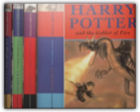
Harry Potter, Pt.5: Harry Potter & the Order of the Phoenix

Book five in JK Rowling's Harry Potter series follows the darkest year yet for our young wizard, who finds himself knocked down a peg or three after the events of last year. Over the summer, gossip (usually traced back to the magic world's newspaper, the Daily Prophet) has turned Harry's tragic and heroic encounter with Voldemort at the Triwizard Tournament into an excuse to ridicule and discount the teenager. Even Professor Dumbledore, headmaster of the school, has come under scrutiny from the Ministry of Magic, which refuses to officially acknowledge the terrifying truth: that Voldemort is back. Enter a particularly loathsome new character: the toad-like and simpering ("hem, hem") Dolores Umbridge, senior undersecretary to the minister of Magic, who takes over the vacant position of defence against dark arts teacher—and in no time manages to become the high inquisitor of Hogwarts. Life isn't getting any easier for Harry Potter. With an overwhelming course load as the fifth years prepare for their examinations, devastating changes in the Gryffindor Quidditch team line-up, vivid dreams about long hallways and closed doors, and increasing pain in his lightning-shaped scar, Harry's resilience is sorely tested. Harry Potter and the Order of the Phoenix, more than any of the four previous novels in the series, is a coming-of-age story. Harry faces the thorny transition into adulthood, when adult heroes are revealed to be fallible, and matters that seemed black and white suddenly come out in shades of gray. Gone is the wide-eyed innocent, the whiz kid of Harry Potter and the Philosopher's Stone. Here we have an adolescent who's sometimes sullen, often confused (especially about girls), and always self-questioning. Confronting death again, as well as a startling prophecy, Harry ends his year at Hogwarts exhausted and pensive. Readers, on the other hand, will be energised as they enter yet again the long waiting period for the next title in the marvellous magical series. —Emilie Coulter Harry Potter, Pt.6: Harry Potter and the Half-blood Prince: Children's Edition

Rowling opens with a chapter she had wanted to use for the first book, of The Philosopher’s Stone—Lord Voldemort has been creating chaos in the Wizard and Muggle communities alike, the war is in full swing and the Wizarding community now lives in fear. The press have been questioning the events at the Ministry which led to the admission of Voldemort’s return, and of course Harry’s name is mentioned a number of times. Harry’s got his problems, but his anxiety is nothing compared to Hermione’s when the OWL results are delivered. There’s a new Defence Against The Dark Arts teacher, an assortment of new characters and creatures, and startling revelations about past characters and events. Gone is the rage-filled Harry of The Order of the Phoenix—he’s not being kept in the dark any more, his unjustified Quidditch ban has been lifted and he has matured considerably in his short time out of school. Half-Blood Prince follows Harry into the world of late-teens, and his realisation that nobody is infallible has made his growth that much easier. Accepting his destiny, Harry continues to behave as teenagers do, enjoying his time with his friends, developing his relationships outside of his usual circle, and learning more about how he must, eventually, do what he is destined to do. J.K. Rowling delivers another fantastic tale which will have the readers gasping for more, capturing the characters perfectly and continuing a tale which readers will enjoy over and over again. —Ziggy Morbi Tenth Man Down

One That Got Away, The

Stand by, Stand by

Zero Option

Vortex: Code Red

Goodbye Baby Blue

Gap Year for Grown-Ups, The

Secrets and Lies: Digital Security in a Networked World

Secrets and Lies is a thorough backgrounder in all aspects of network security, an extremely wide remit that stretches from passwords to encryption, passing through authentication and attack trees along the way. The book is divided in to three broad categories, The Landscape, which covers attacks, adversaries and the need for security; Technologies, which discusses cryptography, authentication, network security, secure hardware and security tricks; and concludes with Strategies, which looks at vulnerabilities, risk assessment, security policies and the future of security. Mercifully there's a dim light at the end of this tunnel and Schnier ultimately remains upbeat about maintaining computer security and details a way forward in his conclusion. Although working in a necessarily techie environment, Schnier's book is surprisingly jargon-free and easy to understand, even if you're not au fait with the inner workings of TCP/IP—it's common-sense, practical style makes a potentially dense and arcane subject accessible by just about anybody. It's also bang up to date, which makes for a pleasant change. Secrets and Lies is never less than thought-provoking and should be essential reading for every network administrator in the land. Be afraid, be very afraid! —Roger Gann Harry's Game

Romeo and Juliet

Get a Life

Doctor's Orders

Faithless

Those weaned on the grisly delights of such Slaughter outings as Blindsighted and Kisscut will know what to expect. And if the novel starts a tad implausibly (Tolliver and Linton, walking in the woods, come across the corpse of a young woman—what are the odds against that?), we're more than prepared to forgive Slaughter this device, when the ever-tightening grip of the narrative takes hold. The duo looks at the evidence, and concludes that the young girl has been literally frightened to death. But during the course of an autopsy, Sara makes a startling discovery—one that gives even the unshockable pathologist pause. She and Tolliver find that there is a trail of evidence leading to a secluded community in the next county, and decide to call in talented detective Lena Adams to aid them. But as the trio draw nearer to the heart of a grim mystery, a destabilising element threatens to undercut their work: Lena’s increasing instability. While there is nothing particularly groundbreaking in this latest outing for Slaughter, all the customary skills are firmly in place. A particular achievement (as so often with this author) is the faultless pacing of the narrative: the slow, steady accruing of detail has the reader on the point of impatience, when a brilliantly orchestrated set piece will be delivered. Perhaps Karin Slaughter's run of luck will come to an end at some point—but not with this book. —Barry Forshaw Triptych

Complete "Cold Feet" Companion, The

Leopard Hunts in Darkness, The

(Snow, Greg) Surface Tension

Doctors to be

It's Only a Game: The Autobiography of Miss Whiplash

(Stanton, Eric et al.) Reunion in Ropes... & Other Stories
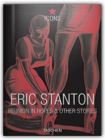
Treasure Island
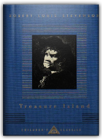
Cuckoo's Egg: Tracking a Spy Through the Maze of Computer Espionage

(Stone, Nick) Mr Clarinet

Chloroform: The Quest for Oblivion

Talking Pooh Been Chase Pb Disney
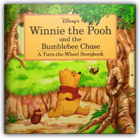
Winnie the Pooh's Most Grand Adventure
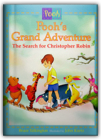
Downing Street Years, The

Call of the Weird, The

Blinding Light

(Thomas, Craig) Sea Leopard

(Thomas, Craig) Jade Tiger

(Thomas, Craig) Firefox Down

(Thomas, Craig) Bear's Tears

(Thomas, Craig) Firefox

(Thomas, Craig) All The Grey Cats

(Thomas, Craig) Last Raven, The

(Thomas, Craig) A Hooded Crow

(Thomas, Craig) Playing with Cobras

(Thomas, Craig) A Wild Justice

Broons Annual, The (1981)

Broons Annual, The (1983)

Broons Annual, The (1985)

Oor Wullie (1986)

Oor Wullie (1990)

Oor Wullie (1991)

Oor Wullie (1993)

Oor Wullie (2007)

Oor Wullie (2009)

Lord of the Rings, The

Hobbit, The

Silmarillion, The

War & Peace, Vol.1

War & Peace, Vol.2

War & Peace, Vol.3

A Fraction of the Whole

Adrian Mole: From Minor to Major (Secret Diary of Adrian Mole Aged Thirteen and Three Quarters, The / Growing Pains of Adrian Mole, The)

Rebuilding Coventry

True Confessions of Adrian Albert Mole, Margaret Hilda Roberts and Susan Lilian Townsend

Queen & I, The

Adrian Mole: the Wilderness Years

Adrian Mole from Minor to Major: The Mole Diaries - The First Ten Years

Adrian Mole: The Cappuccino Years

(with white bread floaters) Grey Lamb Chops Boiled Cabbage avec Dan Quayle Potatoes Dark Brown onion gravy Spotted Dick à la Clinton Bird's Eye Custard Cheddar Cheese, Cream Crackers Nescafé After Eight Mint he is spotted by a cable TV producer and ends up starring in a celebrity chef show celebrating offal. Though he may be older he is certainly no wiser, still passing his time by dreaming of Pandora (now a shining star in Tony Blair's New Government) after his marriage to a Nigerian beauty ends in tatters. But underneath the layers of experience and sophistication, fans of the Mole family will find the same dysfunctional mess that made Adrian's Secret Diary an instant bestseller—his young son is being brought up by his mother in Ashby-de-la- Zouch, his 16-year-old sister leaves home to live with her multiply pierced boyfriend and his father is bed- bound with manic depression. Adrian still makes constant lists of juvenile neuroses and concentrates on his penis activity to an unhealthy extent (it is when it reaches 0/10 he realises something has to be done). Townsend's trademark acerbic wit is still much in evidence; Zippo kissed my mother's hand and complimented her on the shirt she was wearing. 'Is it Vivienne Westwood?' he murmered. 'No', she muttered back. 'It's BhS'. 'You clever thing', he crooned. it is only the frames of reference that have changed. Occasionally verging on the corny ("I arrived at the Brent Cross shopping centre car-park, to find that my car had been towed away five days ago and was in a police compound somewhere in Purley. A £25 cab ride took me to the Purley gates …") true Mole fanatics will forgive Townsend her occasional excesses for the numerous laugh-out-loud moments that punctuate Adrian's existence as he blunders on towards middle age. Accessible, amusing and appealing, The Cappuccino Years see an Adrian who has survived the Growing Pains; thought better of True Confessions; is out of the Wilderness Years and is facing the only really important question that remains: Is Viagra cheating? —Lucie Naylor Public Confessions of a Middle-aged Woman, The

Number Ten

Adrian Mole and the Weapons of Mass Destruction

Queen Camilla

Adrian Mole: The Prostrate Years

Eats shoots and leaves: The Zero Tolerance Approach to Punctuation

Eats shoots and leaves: The Zero Tolerance Approach to Punctuation

I Love Geeks: The Official Handbook for Dating Dorks, Dweebs, and Nerds

Fools Rush in

Turner's truthfulness—at least, the truth as seen through her own, Peter-Pan eyes—seems unquestionable, and while this latest contender for the Turner Prize for Publicity leaves ex-lovers shivering naked in the spotlight, Anthea perhaps tells us more about herself than she intends by dropping in priceless quotes. "I was at the very peak of my career, rivalled only, according to one paper, as the blonde most little girls wanted to be" she lisps blithely, before informing us "I'm a big Michael Flatley fan". More telling are her recurrent references to money, from "Pete and I divorced for #127.50" to "It has cost Grant and I over 1 million pounds to be together"; but most dangerous of all are her over-earnest justifications as she faced trial by her public. Surely it is the relationship with her young stepdaughters, who she clumsily mentions and should have left well alone, which needs work. Anthea Turner hoped to set the record straight with this autobiography. Instead with Fools Rush In—hugely entertaining for all the wrong reasons—she may have made things worse. There was once a time when it looked like chocolate wouldn't melt in the mouth of TV's golden girl, now it seems a certain Cadburys' snowflake bar—as shown ill-advisedly in a wedding publicity snap—has melted her perfect image. —Eilidh McLean Hacker Diaries, The: Confessions of Teenage Hackers

Lovers and Other Strangers
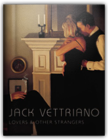
Chav! A User's Guide to Britain's New Ruling Class

Thud!: Wile E. Coyote Experiments with Forces and Motion
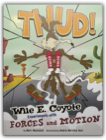
Hayley Westenra: In Her Own Voice

Devil & All His Works, The

Nutty Nut Chase, The
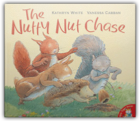
(White, Neil) Fallen Idols

House Husband, The

Picture of Dorian Grey

Complete Works, The
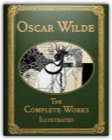
(Williams, Tad) Otherland, Pt.1: City of Golden Shadow

All around, death. It was not a quiet presence during the long day—not a pale-faced maiden bringing surceasse from pain, not a skillful reaper with a scalpel-sharp blade... Death on the Trojan plain was a crazed beast that roared and clawed and smashed, which was everywhere at once, and which in its unending fury showed that even armoured men were terribly frail things. Tad Williams takes the gameworld and turns it on its head, passionately; how do we know that what bleeds does not feel pain? He is writing a classic of cyberspace adventure which has a sorrowful heart. —Roz Kaveney (Williams, Tad) Otherland, Pt.2: River of Blue Fire

As it opens, we join up again with the ragtag bunch of searchers trapped in an astoundingly detailed and frightfully dangerous virtual world known as Otherland. Lurking in disguise among the group is the brutally vicious serial killer Dread, trying to find information that will help him overthrow his Grail Brotherhood masters. The group follows a ubiquitous river through world after world, unable to go offline, and subject to the increasingly terrifying certainty that things in this supposedly virtual place are all too real. Meanwhile, Paul Jonas, an amnesiac (but somehow pivotal) character fleeing from two sinister beings, finds more and more of his memory as he does his own Huck Finn river trip. As in the first novel, each new world that the characters enter, from Palaeolithic Ice Age to something suspiciously like Oz, is fully realized and completely unpredictable. Williams is a master at parcelling out information to the reader in dribs and drabs, which is frustrating yet tantalizing, like a particularly good computer game. When the group is split up and the adventure divides further, the reader senses the author as a puppet master, following some incredibly complex flows of information. The best course is just to hang on and enjoy Williams's deft characterizations, lush descriptions and wildly divergent plot. If you've ever been white-water rafting, you'll recognize the feeling. —Therese Littleton (Williams, Tad) Otherland, Pt.3: Mountain of Black Glass

All around, death. It was not a quiet presence during the long day—not a pale-faced maiden bringing surceasse from pain, not a skillful reaper with a scalpel-sharp blade... Death on the Trojan plain was a crazed beast that roared and clawed and smashed, which was everywhere at once, and which in its unending fury showed that even armoured men were terribly frail things. Tad Williams takes the gameworld and turns it on its head, passionately; how do we know that what bleeds does not feel pain? He is writing a classic of cyberspace adventure which has a sorrowful heart. —Roz Kaveney (Williams, Tad) Otherland, Pt.4: Sea of Silver Light

Williams manages a vast cast of emotionally involving characters with considerable panache, but the real strength of the book is its endlessly questing intelligence; it is, among other things, an enquiry into the nature of story-telling as a way that human beings give structure to their perceptions of the universe around them. It is as story that Sea of Silver Light ultimately works so well—involving us in the gruelling descent of a vast mountain, the siege of an underground fortress, gun-battles in a nightmare Wild West. Williams never neglects to tell us how things feel. He efficiently ties up every plot strand and convincingly reveals every secret in this large complex plot. —Roz Kaveney (Williams, Tad) Shadowrise

Concertina: The Life and Loves of a Dominatrix

Contact Zero

What Not to Wear: Pt.2 - For Every Occasion

What You Wear Can Change Your Life

What Your Clothes Say About You: How to Look Different, Act Different and Feel Different

Trinny & Susannah: The Survival Guide - A Woman's Secret Weapon for Getting Through the Year

What Not to Wear

This book enlarges upon what is shown in the series. Susannah and Trinny are not about fashion; they are about personal style - dressing for your body shape and personality - and this book shows you how. 'Trinny and Susannah can be breathtakingly irritating but also happen to have extremely good taste.' Elizabeth Hurley 'Shopping with the girls is like running a marathon, and it's fun too.' Lulu 'I'd rather eat my own hair than shop with these two again.' Jeremy Clarkson Under the Lake

Icon Steve Jobs: The Greatest Second Act in the History of Business

ICon Steve Jobs: The Greatest Second Act in the History of Business

Crusade

|


Killian
Collection Total:
10750 Items
10750 Items
Last Updated:
Jul 28, 2017
Jul 28, 2017


 Made with Delicious Library
Made with Delicious Library